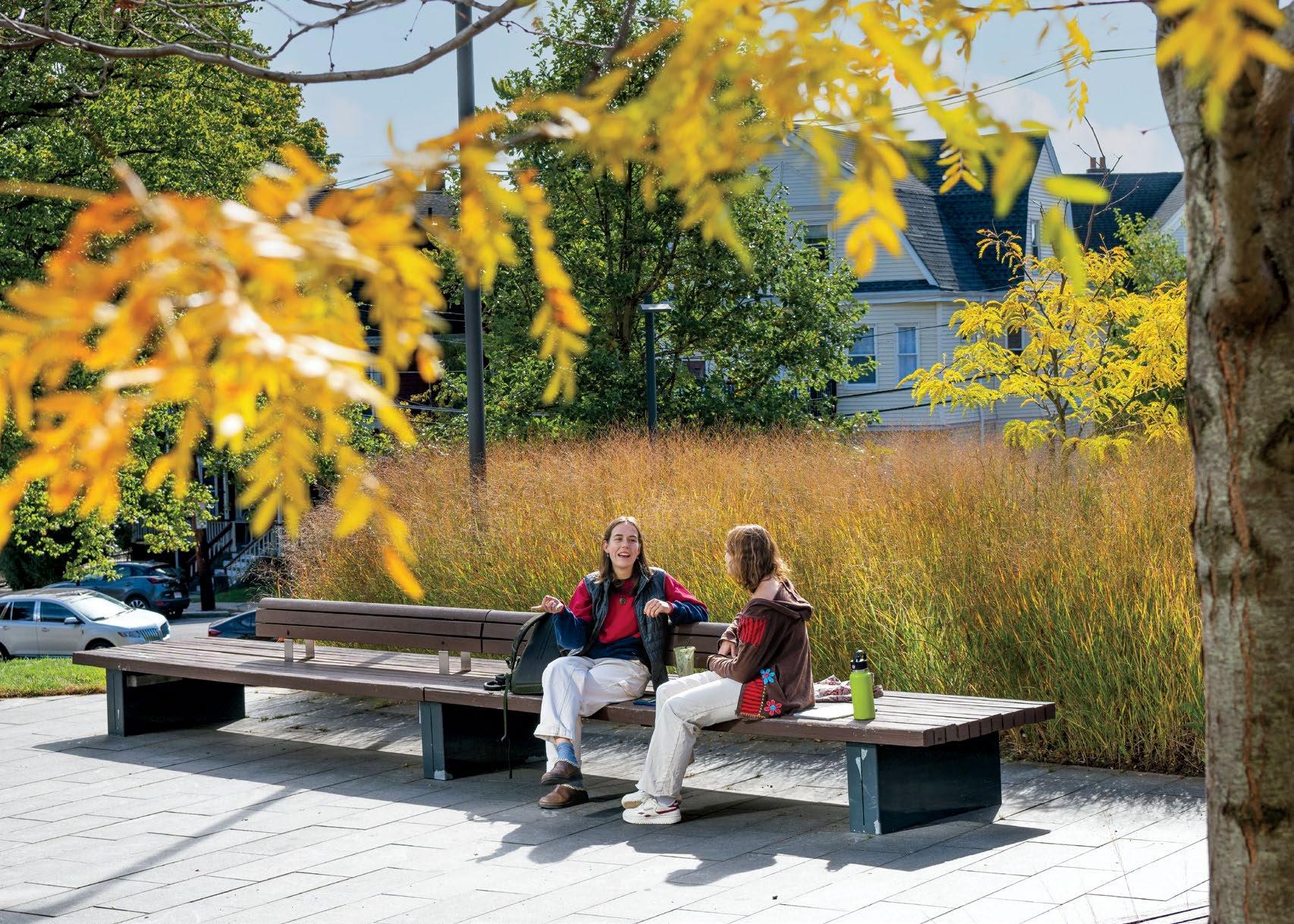JUMBO
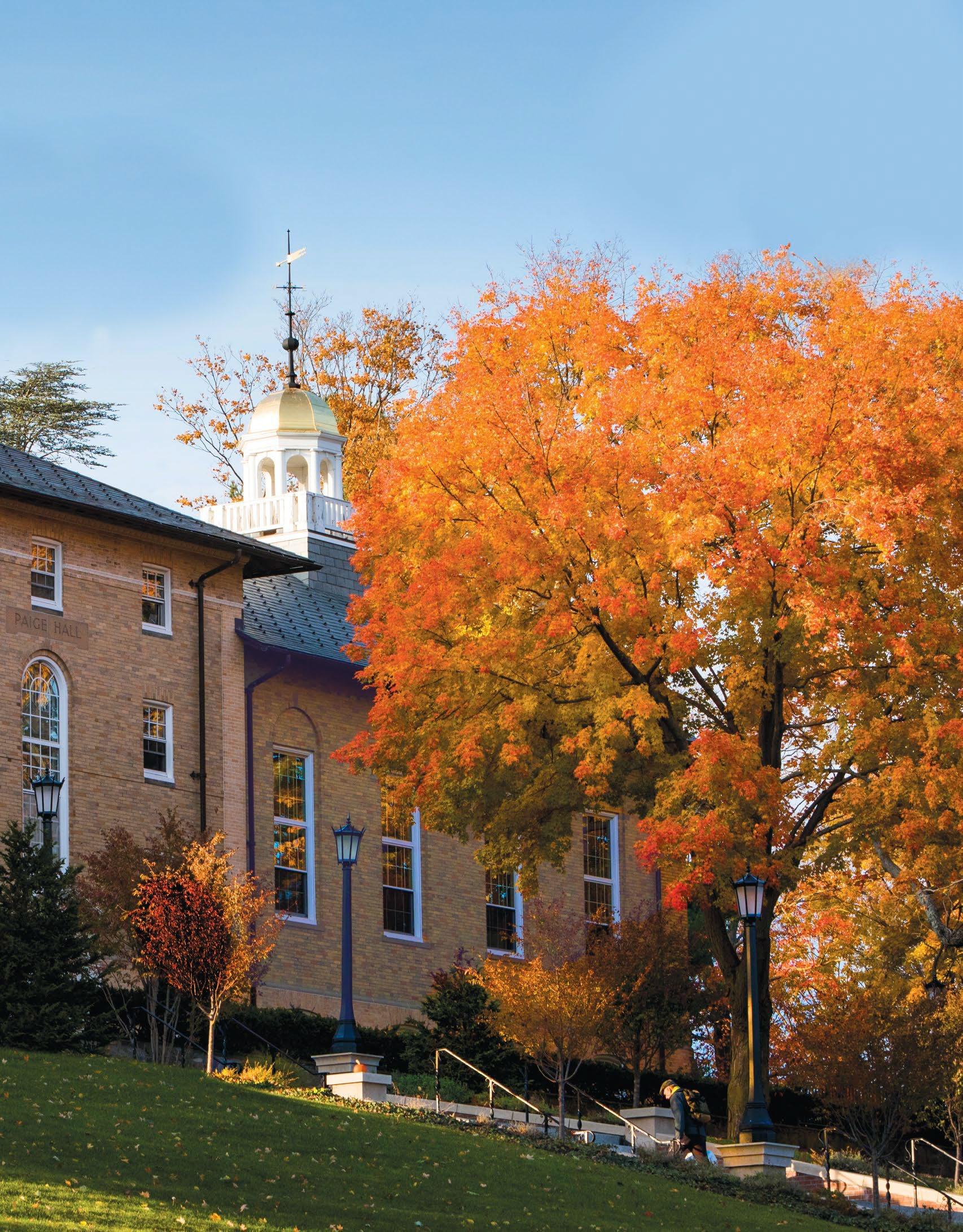
THE MENTORSHIP ISSUE
Tufts Alumni Supporting Career Exploration for Undergraduates
How Jumbo Athletes Connect with the Community
Gaining a Competitive Edge by Fast-tracking Two Degrees in Five Years
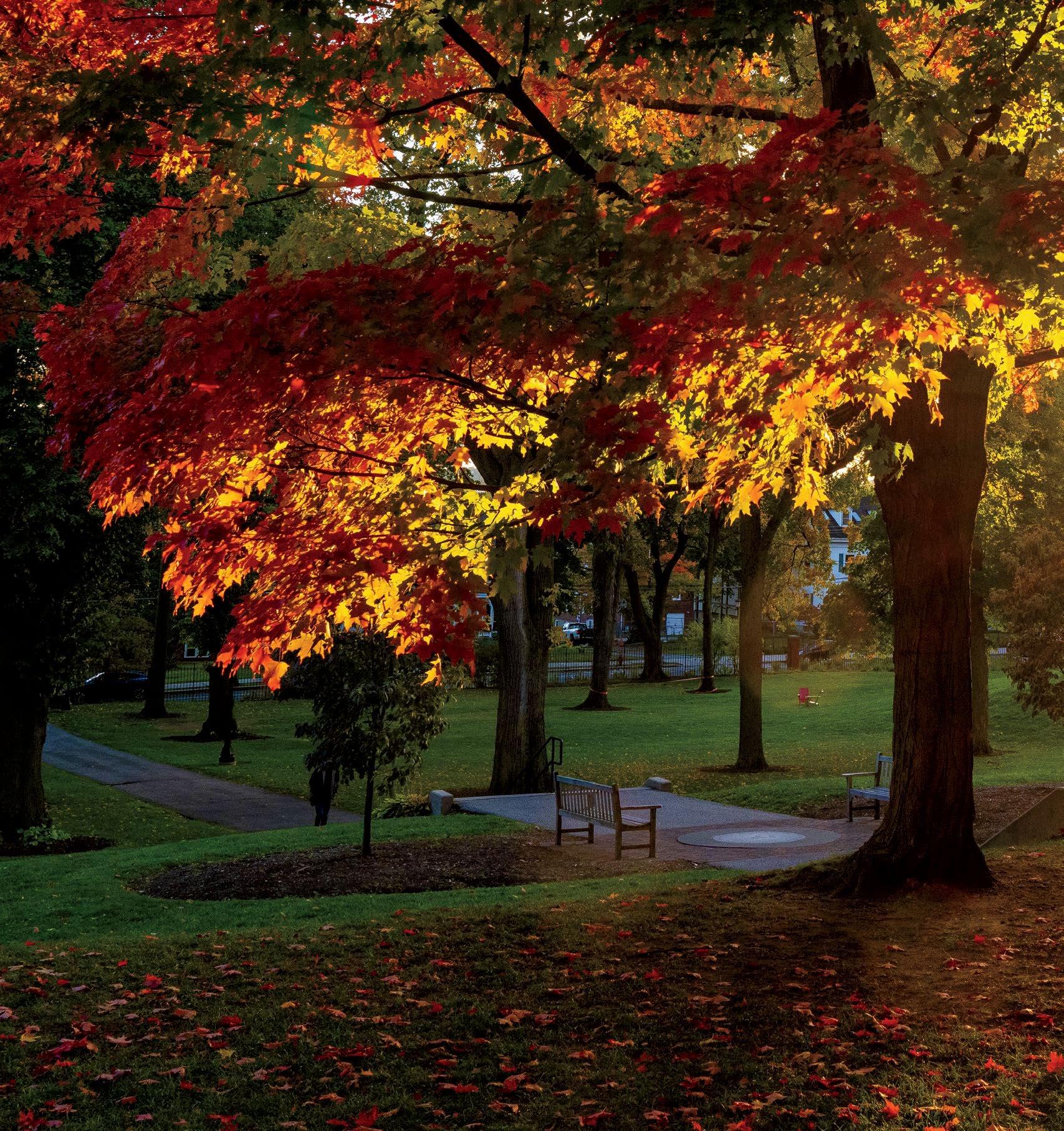


THE MENTORSHIP ISSUE
Tufts Alumni Supporting Career Exploration for Undergraduates
How Jumbo Athletes Connect with the Community
Gaining a Competitive Edge by Fast-tracking Two Degrees in Five Years

These pages were written by Tufts students. Flipping through them should feel like taking a stroll through campus. You’ll meet professors and students; they’ll share with you what excites them. You’ll drop into a class on an unfamiliar topic and leave inspired, dig into some fascinating research, or hang out in a residence hall with potential classmates.
Along the way, you might decide that Tufts feels like the right place for you. If that happens, this magazine is also for you—flip to the back where we’ve broken down the basics on applying: deadlines, financial aid, and advice. This is Tufts; explore it.
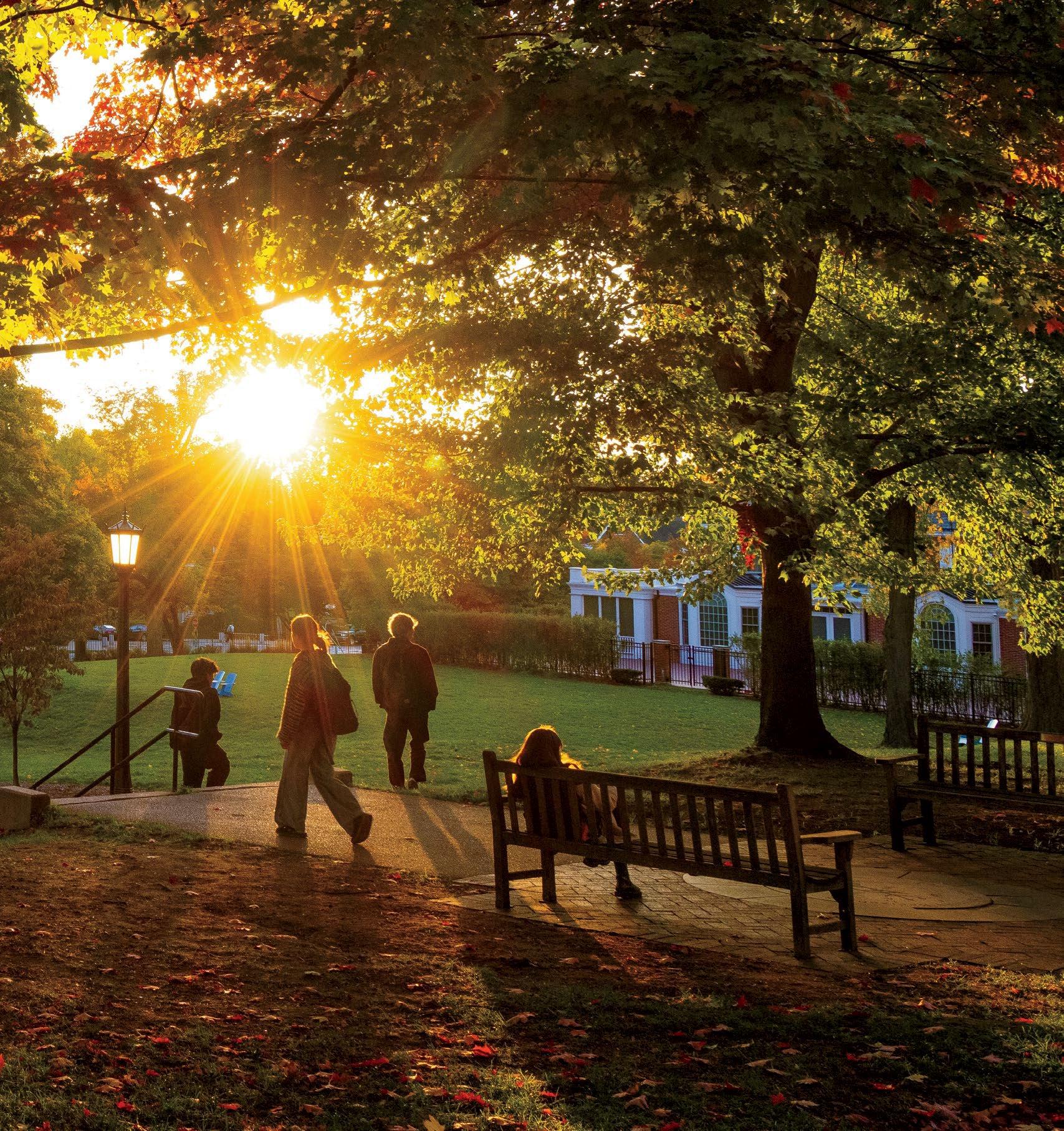
16 | Local Internships that Make a Jumbo Difference
Learn more about students’ local experiential learning opportunities.
30 | Connecting Across Difference
Discover the ways Tufts undergraduate students are encouraging inclusive dialogue.
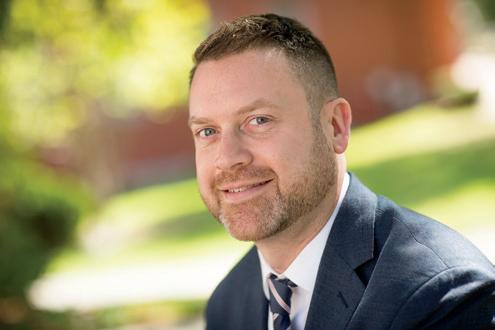
GREETINGS,
Tufts University is a people place. Sure, Tufts is an R1 research university that is at the forefront of undergraduate education, generating new knowledge while simultaneously providing an engaging classroom and learning experience. But it is also a place where the people—whether students, faculty, or staff; whether artists or engineers or athletes or thespians or environmentalists or some combination of these and others—make the place hum. Tufts is a community—made up of extraordinary people.
Tufts has a particular knack for attracting kind, collaborative, civically engaged, and intellectually playful students. Our students are eager to learn— and to have fun along the way. They are committed to taking what they learn at Tufts and using it for good in the world beyond our campus. They are prepared for a multitude of professional paths after graduation, in no small part because of their ability to engage with and learn from people different from
them. After all, no two Tufts students are the same, and our student body is drawn from all 50 US states and dozens of countries around the world. With more than 150 majors, minors, and programs available to Tufts undergraduates, we draw students with diverse academic interests and prepare them for the professional, intellectual, and social journeys that await them.
In this issue of Jumbo, you will be introduced to some of the many people that make Tufts so special. That includes students like Jose Armando Rodríguez Sánchez ’26, a biomedical engineer who has an interest in accessibility in communi ties and co-authored an impactful initiative to improve pedestrian infrastructure on campus, and Arianna Shalhoub ’27, a BFA+BA/BS Combined Degree student who has created a student club dedicated to performance and wrote a children’s book. You will read a conversation with Professor of the Practice in English, Simon Han, and student Rose Hollander ’25 as they discuss the importance
MEET THE STUDENT COMMUNICATIONS GROUP
Most of what you’re about to read was written by these Tufts students. Listen for their voices as they introduce you to the Tufts community, page by page.
MADELINE CORTESI ’25 from Springfield, VA
RUBY MCELHONE YATES ’25 from Easthampton, MA
SHANNON MURPHY ’26 from Melrose, MA
“TUFTS IS A COMMUNITY— MADE UP OF EXTRAORDINARY PEOPLE.”
of exploring literature. And you’ll learn more about how Oxana Shevel, Associate Professor of Political Science and Director of the International Relations Program, encourages students to consider how politics, citizenship, and nation-building contribute to international relations.
I hope you can see yourself becoming classmates, and even friends, with the people you meet in these pages. After all, you have your own special qualities to contribute to the Tufts community. My colleagues and look forward to getting to know you better through your application.

JED QUIAOIT ’25 from San Diego, CA
AFUA SIAW ’26 from Bronx, NY

At Tufts, there’s always something to catch your eye, turn your head, or pique your intellectual curiosity. From state-of-the-art research labs to hanging out on the Prez Lawn and everything in between, see how many Tufts traditions, landmarks, and offerings you can spy on this page. Who knows? Maybe they’ll open the door to something new to you at Tufts.
Jumbo: Jumbo the elephant is our mascot. He was a very real elephant in the 19th century, and now a life-sized sculpture of him stands tall (12 feet to be exact) on the Academic Quad. Taking a picture with him is a rite of passage here at Tufts.
The Cannon: One of the most popular venues of student expression, Jumbos will paint this replica for championship wins, friends’ birthdays, album releases—whatever is most important to them.
Bessie: Affectionately called the Queen of SMFA at Tufts, Bessie the rhino stands at the entrance to our Fenway campus. She makes a great lunch buddy for those looking for a little sunshine.
Joyce Cummings Center: Right next to the Medford/Tufts Green Line T stop, the Cummings Center houses the economics, computer science, math, data science, and entrepreneurship programs.

EXCOLLEGE HIGHLIGHT:
HOW TO LISTEN TO JAZZ
THE EXPERIMENTAL COLLEGE at Tufts is one of our most unique institutions, where undergraduates can teach credit-bearing courses to their peers. Take a look at one course offered last spring: “[Jazz] is pervasive in our culture from its influence on music to inspiring American political movements. Despite the rich history and practice, it’s often misunderstood that you have to be musically literate to enjoy jazz. This course seeks to help students understand what to listen for and how to listen to jazz. We will focus on understanding how to identify different types of jazz by ear and how to enjoy this music. Students will also learn how prevalent jazz’s influence in modern pop culture is and how to identify its influences.”

TUFTS BEGINS CONSTRUCTION ON NEW UPPERCLASSMEN RESIDENCE HALL
TUFTS is excited to share the plans for a new residence hall for junior and senior students! Located in a prime location right next to Dowling Hall and across the street from the Medford/Tufts Green Line T station and the Joyce Cummings Center, the new housing for advanced undergraduates will continue the University’s efforts to provide housing options for our students. The projected completion date is the fall of 2027.
ONE OF THE OLDEST and most historic buildings on the Medford/Somerville campus recently had a makeover! Eaton Hall, originally built in 1905, housed the Tufts library for many years and has since held computer labs and the academic departments of Anthropology, Classical Studies, Religion, Sociology, and Women’s, Gender, and Sexuality Studies. After the renovation, the building offers quality of life improvements like flexible work spaces for undergraduates to collaborate and study together, as well as environmental sustainability improvements and a beautiful internal courtyard.
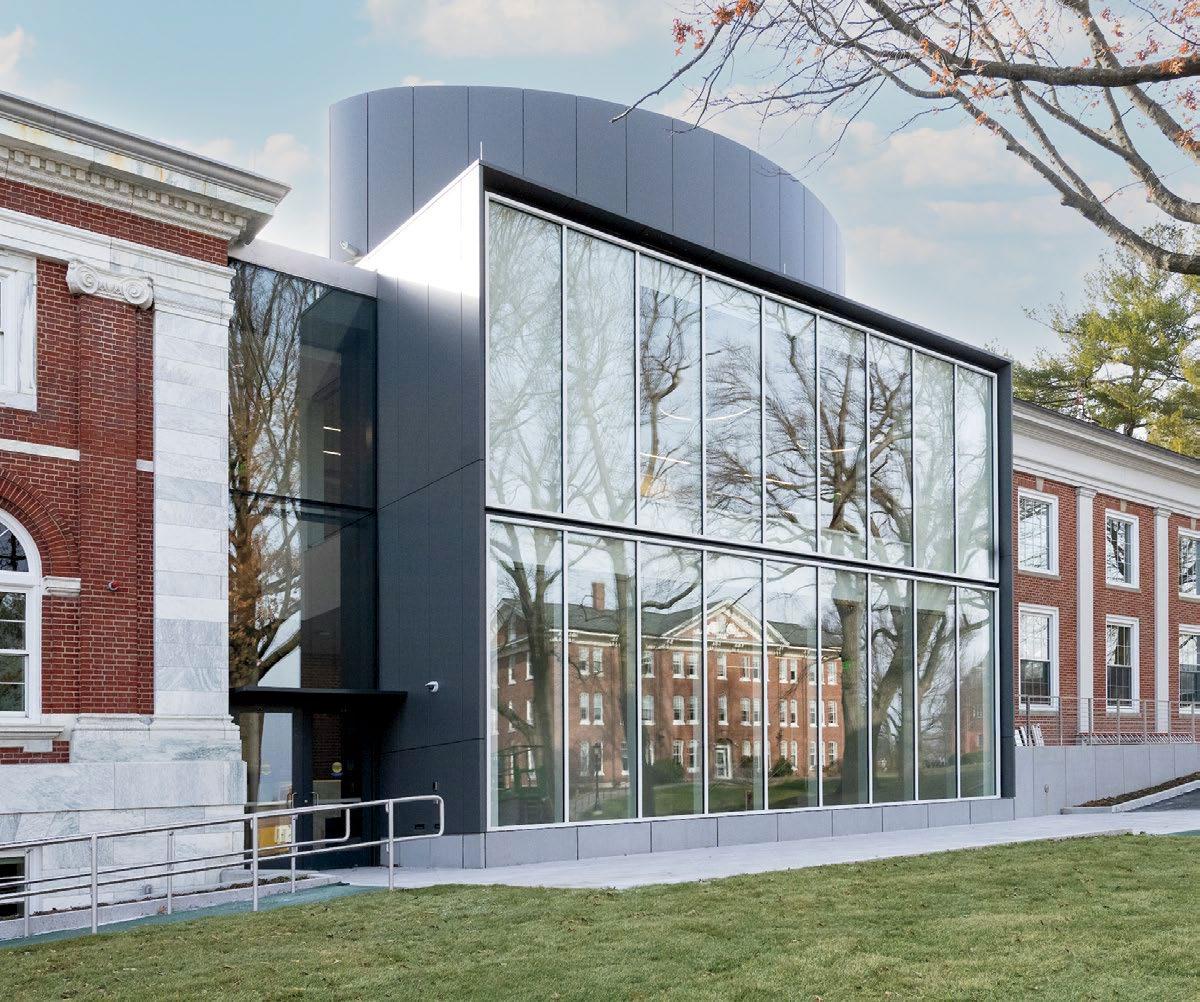
TUFTS HOSTS EAST COAST EDITION OF THE INDIGENOUS LEADERSHIP ACADEMY
THROUGH OUR PARTNERSHIP with Arizona State University, Tufts brought Indigenous leaders from across the United States together through virtual and in-person programming for the first Indigenous Leadership Academy hosted on the East coast. The program was co-hosted by Vernon Miller, the Director of the Tufts Indigenous Center, a space that supports belonging and community for students from Indigenous backgrounds and all students at Tufts.
TUFTS UNIVERSITY is proud to be a member of the Consortium for College Opportunity! This initiative expands our commitment to and work with college access organizations, including TRIO and GEAR UP, two federal programs that support students from low-income backgrounds seeking to pursue higher education. As one of a handful of universities across the country that meet 100% of demonstrated financial need, Tufts is excited to encourage more students to consider the benefits and affordability of selective colleges.

“I want to focus on restructuring communities to be more accessible.”

Oftentimes, interviewing students feels like a meetand-greet with campus microcelebrities, and that’s how I felt when I chatted with Jose, who’s easily recognizable because of his role as Tufts Community Union (TCU) senator.
Last year, Jose was the Administration and Policy Chair; this year, he’s the Outreach Chair. As for what motivates him? Jose said, “I always say, ‘You can’t remove a hill from campus, but you can make it feel like there isn’t one.’ That kind of thinking has really shaped my work over the past few years.”
As we took a step back from his senatorial work, I got to learn more about Jose. Coming to Tufts from Arkansas, he majors in biomedical engineering and minors in entrepreneurship. “I want to focus on restructuring communities to be more accessible. That’s inspired by my sister, Maria, who has epilepsy and learning disabilities. I grew up with her, and I carry her story with me in everything do,” explained Jose.
Jose’s authenticity and relentlessness is evident in his track record. In his first year, he started lighthearted and impactful initiatives. His “#JoseMadnessChallenge” on Instagram encourages people to be themselves in a genuine way.
At the same time, he co-authored a TCU Senate resolution to invest in pedestrian infrastructure around campus, which resulted in Tufts committing $150,000 annually to said cause and Massachusetts Governor Maura Healey recognizing
his work in a letter. Jose recounted being shocked, “I called my mom thinking she reached out to the governor. Turns out she hadn’t. It made me realize that the people who look out for us aren’t always who we expect, and [Healey’s] letter felt like a sign to keep going.”
Jose’s journey at Tufts, however, didn’t start with rainbows and unicorns. When he got a low grade on his first physics midterm, he doubted himself: “I often felt like I didn’t belong [in engineering]. I compared myself to others back then, but now I see the power in carving your own path.”
His comeback story, in fact, happened when he got into running. “I started during the summer after freshman year when I got an internship teaching engineering to kids. I did my first 5K, then another with St. Jude. Then I signed up for the Boston Athletic Association’s distance medley: the 5K, 10K, and half-marathon. This past December, I ran my first full marathon in Memphis with St. Jude. Now I’m training with the Running Club, and I’ll do the medley again this year and hope to run another marathon in December,” Jose explained. That said, Jose doesn’t shy away from failure. “Honestly, I’ve failed a lot. Failure doesn’t define you; how you grow from it does. I use running as a form of advocacy. It’s not about speed; it’s about intention.”
When it comes to finding his footing over time, Jose reflects, “Even though I’ve always been outgoing, I felt like an outlier. Coming from rural Arkansas, I had a bit of an accent and a different background,
but over time, found my people.” He gleefully credits the staff at the Center for STEM Diversity, peers and mentors at TCU Senate, the Catholic community at Tufts, and his fraternity Zeta Beta Tau as some of his support systems.
Jose works collaboratively with his cited support systems often. He collaborated with the Center for STEM Diversity on convening students, faculty, and staff in small-group discussions to identify accessibility challenges such as course design, lab access, and advising resulting in department level action items. He helped to plan bilingual services and integrate culturally relevant music with Tufts’ Catholic Chaplain, Lynn Cooper, to increase belonging for Spanish-speaking and international students. And in addition to his work on the pedestrian infrastructure reformation, Jose continues initiatives tied to accessibility and community impact with the student group Access Betters the Lives of Everyone (ABLE).
He even sprinkled in some advice to prospective Jumbos, including some of you who might be reading this right now, “It’s okay to feel lost at first [when looking for a college or a field of study]. You won’t have all the answers right away, but you will find them—maybe not in a week or even a year, but they will come.” He also adds, “It’s okay to feel like an outlier. Trust your heart and don’t let imposter syndrome steer you away from something meaningful!”
JED QUIAOIT ’25

BIOMEDICAL ENGINEERING MAJOR AND ENTREPRENEURSHIP MINOR FROM STUTTGART, AR
Whether you’re a first-year student thinking about a summer internship or a senior preparing for life after the hill, Tufts students visit the Career Center to have resumes and cover letters workshopped, learn about the vast resources available to support professional pathways, and seek opportunities for career development. One of the most powerful assets of being a Jumbo in the career world is knowing other Jumbos.
BY RUBY MCELHONE YATES
’25
The Herd is an online networking database specifically for Tufts alumni interested in offering advice and insight into their professional fields. As an undergraduate student, The Herd is a great place to connect with Tufts alumni to discuss choosing a major, pre-professional tracks, internships, and other ways to explore your interests. Mark Hillman ’86 has been on The Herd for several years and is hoping to help current students intrigued by finance identify their motivations and interests in the field. Hillman notices that “finance” can be vague and for students without family connections to the industry, it can be difficult to navigate. Mark said, “My hope in participating in [The Herd] is to be able to talk to more first-generation college students.”
Hillman has spoken with multiple students about his work at Hillman Capital Management, but one conversation really stood out: meeting Randy Hamilton ’26. Randy was interested in capital management and also brought skills that happened to be exactly what Hillman was looking for in a summer intern. According to Hillman, “For us to find someone who is a fit and could add value and self-direct and do the research was amazing. That was an unexpected benefit to us.” Randy shares Hillman’s enthusiasm for the partnership saying, “My experience at the firm was incredible. Mark and the team were highly
open to sharing insights about capital management and the investment process once they saw how serious and interested I was. The experience truly broadened my perspective on fundamental research and helped shape my investing framework.”
Since his internship, Randy has organized a cohort of students interested in finance and now supervises other students’ projects. Hillman Capital Management receives the results of the work, Randy gains research and management experience, and students with an emerging interest in finance participate in research opportunities.
In addition to networking with alumni, The Herd offers a unique job search feature where you can see active job postings where Tufts alumni are working and connected. Alumni at the organization might support your application and provide students with a resource with whom to connect for insights into company culture and job expectations.
For students looking for something part-time, The Herd lists short-term projects, paid and unpaid, to help students develop skills and experience with alumni sponsors. These opportunities range from 10-hour social media management to multiple months of coding assistance.
The Career Center works with alumni to hold regular networking events for undergraduate students to explore various industries and professional pathways. At the Social Impact Networking Night, students heard from policymakers, non-profit founders, and researchers and had the opportunity to chat with dozens of alumni in social impact positions at think-tanks, community organizations, and advocacy groups. These networking events are held a wide range of career paths, from green jobs and consulting to engineering and communications.
In addition to the mentorship available through The Herd, the Career Center operates three mentoring initiatives: FIRST Resource Center Career Mentoring Program, Africana Center Career Mentoring Program, and the Tufts Lawyers Association Early Career Mentoring Program.
The FIRST Resource Center is open to all Tufts students and supports firstgeneration and low-income student communities at Tufts. Alum Kevin Ngan ’16, currently working in Chemical Biology and Functional Genomics at Terssera Theraputics, has been a mentor in the program for two years. Ngan himself relied on mentors during his time at Tufts. Ngan said, “As a first-generation
student, it is difficult to rely on your family to help you navigate college.” Now, Ngan has decided it is his time to pay it forward and has found working with students to be personally rewarding.
Tufts connects current students and recent alumni with professionals in a variety of fields and with a variety of identities. The Tufts Women’s Network, Entrepreneurial Network, Friends of SMFA at Tufts, and the Journalism Society are all groups of past and present Jumbos who are interested in sharing their expertise and opportunities with each other, connecting over their interests through events sponsored by the Career Center.
The Career Center offers credit-bearing classes for students to better understand professional skills and financial literacy. In “Exploring Your Career Pathways,” Jaden Ferraro ’25 learned about available resources. This class requires students to reach out to alumni, who, according to Ferraro, are enthusiastic to connect with current Jumbos. Ferraro says, “The class was really great and exposed me to so many resources that I didn’t know about. honestly wish I had taken it as a freshman instead of as a junior. “

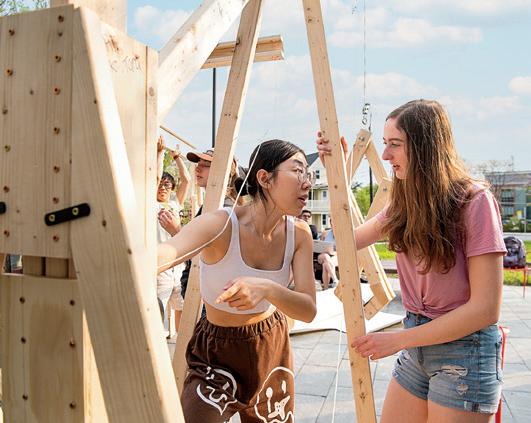
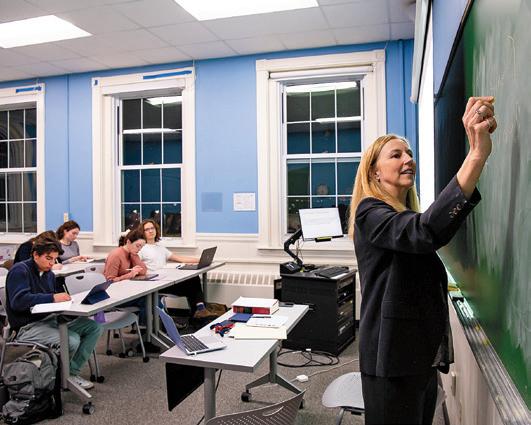
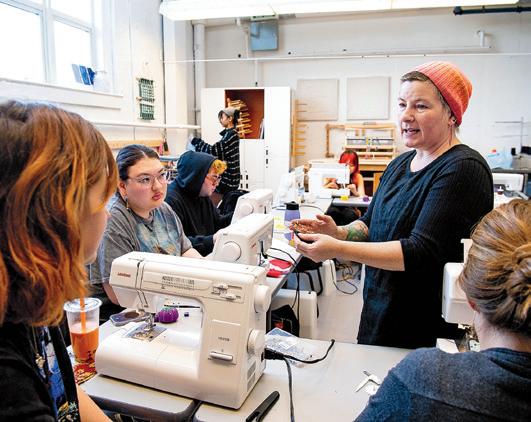
Imagine earning two degrees in just five years. Tufts offers an incredible opportunity to fast-track your academic journey by earning both a Bachelor’s and a Master’s degree, giving you a competitive edge in the job market. With this unique option, you’ll gain both foundational knowledge and specialized skills that will be a game changer for the future.
Undergraduate students at Tufts can apply for the Fifth-Year Master’s Degree Programs during their junior year or early senior year, once they’ve honed in on their academic interests. After connecting with the Director of Graduate Studies in their chosen field, students are typically able to apply with abbreviated application requirements, such as no GRE requirement, no application fee, two letters of recommendation, and a waived enrollment deposit fee. Once admitted, students can begin taking graduate-level courses alongside their undergraduate coursework, with some coursework counting toward both their Bachelor’s and Master’s degree requirements.
Along with earning a graduate degree on an accelerated timeline, these programs allow students to customize their coursework and prepare for specialized career paths. Here’s a look at the degree pathyways students can pursue:
ARTS & SCIENCES
Art Education, BFA/MAT
Biology, BS/MS
Chemistry, BS/MS
Child Study and Human Development, BA/MA
Classics, BA/MA
Data Analytics, BA/MS or BS/MS
Economics, BS/MS
Middle and High School Education, BA/MAT or BS/MAT
Environmental Policy and Planning, BA/MS or BS/MS
Mathematics, BS/MS
Museum Education, BA/MA
Music, BA/MA
Philosophy, BA/MA
Sustainability, BA/MS or BS/MS
Urban and Environmental Policy and Planning, BS/MA or BA/MA
ENGINEERING
Artificial Intelligence, MS
Bioengineering, MS
Biomedical Engineering, BS/MS
Biophotonics, MS
Chemical Engineering, BS/MS
Civil and Environmental Engineering, BS/MS
Computer Engineering, BS/MS
Computer Science, BA/MS or BS/MS
Cybersecurity and Public Policy, MS (must enroll in the fall semester)
Data Science, BS/MS
Dual Degree Program: MS in Innovation and Management, Engineering Management, or Technology Management and Leadership + MS from another School of Engineering academic department
Electrical Engineering, BS/MS
Engineering Management, MS
Human Factors Engineering, BS/MS
Human-Robot Interaction, MS
Innovation and Management, MS
Materials Science and Engineering, MS
Mechanical Engineering, BS/MS
Offshore Wind Energy Engineering, MS
Software Systems Development, MS
Technology Management and Leadership, MS
FRIEDMAN SCHOOL
Nutrition Science and Policy, MS
FLETCHER SCHOOL OF LAW AND DIPLOMACY
International Relations, BA/BS/Master of Arts in Law and Diplomacy (MALD)*
SCHOOL OF MEDICINE
BA/BS/Master’s of Public Health (MPH)
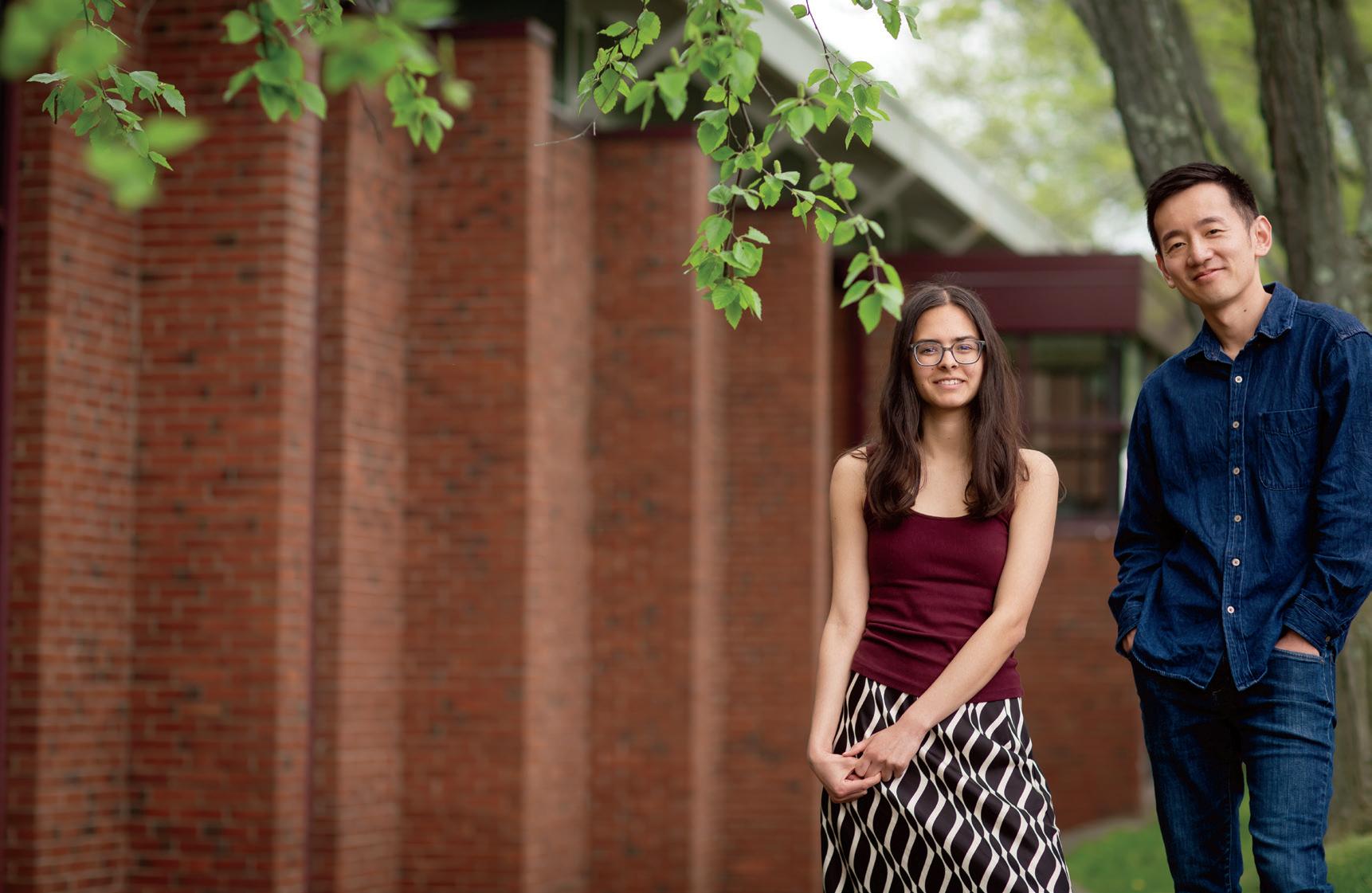
Being a Jumbo means finding mentorship in places you may not have expected. For Rose Hollander ’25 that mentorship came while exploring an interest in fiction. Professor Simon Han, Professor of the Practice in English and Rose’s senior thesis advisor, encourages students to explore a wide range of literature to expand their perspectives. After having the chance to sit down with Rose and Professor Han, I learned more about the impact writing can have.
How did you meet one another?
Simon Han: We met through an introduction to fiction class, but then Rose took my advanced fiction course the following year and now I’m advising Rose’s senior thesis. It’s been exciting continuing this relationship in which Rose is learning from me, but I’ve also learned a lot from Rose over the years. I’ve seen Rose grow as an artist and thinker, but she also continues to push at assumptions and challenges existing paradigms of what “makes” for literature. It’s made me rethink some things I’ve gotten too used to saying in classes. So it’s been a really fruitful few years being able to work with Rose.
What draws you to writing and what have you taken away from English classes at Tufts?
Rose Hollander: I think one takeaway for me is how interesting it is to read other people’s creative writing. At Tufts, I’ve met so many people with different interests who tried creative writing and wrote such interesting stories that never would have thought to write.
SH: There’s this thing that various writers have said, “I don’t know what really think until I write it down.” And that rings true for me. Writing has always helped me reign in the chaos in my mind. It’s clarifying to be able to put it on the page, and then the struggle of putting down word after word and finding the right order produces something new too. It makes me ask more questions than I had before. And so I feel like it’s a way of orienting me in a more present way with my world, and then it’s also just very fun at the end of the day.
Professor Han, what do you hope students learn from your classes?
SH: By just allowing yourself to be exposed to a wide range of literature with different styles and subject matters, you kind of expand. My hope is that you leave my class with a more expansive understanding of what a story can be. I also want students to feel empowered to tackle the blank page so it isn’t a moment [of] paralysis where you’re like, “I could do 500 different things here, and I don’t know where to start.” It is also an opportunity to try stuff out on the page and be able to be in tune with the effects of those choices you make on the page. And to be able to articulate that in the classroom can be kind of clarifying for a student, and so hopefully they leave the class being able to notice that in other texts and in their own writing as well.
Rose, in your mind, what makes Tufts unique?
RH: I feel like Tufts is the epitome of a liberal arts education. Everyone is insanely interdisciplinary. Most people know are either double majoring, or they have a major and a minor, or they take classes on so many different things. I know basically nobody who is just like, “I like biology, and my entire life is biology.” Everyone is interested in a lot of things and there’s a lot of support for that from the university. It’s as if there are no walls between subjects.
Professor Han, do you have any words of advice for prospective students applying to Tufts?
SH: It’s okay to relax. You don’t have to have figured out exactly what you want to do at Tufts, because this is an environment, like Rose said, that encourages people to have a broad range of interests. If you feel like there are five different parts of yourself that you can’t reconcile, this is a place where you can actually find that you’re not this person full of contradictions. All of these things can be part of one person and make you who you are, and you can explore that here.
For students looking for a meaningful way to spend a summer, Tufts offers a variety of summer study abroad opportunities as a complement to our semester programs across the globe. BY
RUBY MCELHONE YATES
’25

Data and Computer Sciences in Pavia, Italy: Tufts’ School of Engineering teamed up with the Italian Studies department to allow students to immerse themselves in Pavia, Italy, a university city not far from Milan, and learn about the Italian language and culture while earning credits in data science and computer science. This program is tailored to provide engineers with the experience of living abroad while supporting their interest in technology and data. Many programs in Italy are focused on the humanities and arts, so the Tufts in Pavia program offers a unique opportunity to progress with CS coursework while taking in the beautiful country of Italy. The group travels around the city and takes excursions to Milan, Modena, Turin, and Cinque Terre. Courses are taught in Palazzo Vistarino, a renovated palace from the 18th century now owned by the University of Pavia.
Global Public Health and Indigenous Communities in Santiago, Chile: This program offers students the opportunity to practice Chilean Spanish, expand their knowledge of public health, and consider Indigenous approaches to health care through global and

regional perspectives at the Pontificia Universidad Católica in Santiago. Students have the unique opportunity to stay in homes with Chilean families and immerse themselves in Chilean life and culture.
Tufts in Annecy: Tufts in Annecy offer students the opportunity to take introductory or intermediate French at the Centre Internationale de la Langue Francaise a Annecy with native French speakers. Faculty members from the Tufts French department are on-site to assist students with the transition to and from Annecy and support their academic progress. Students live with local families and get to know the local culture in this picturesque spot in Eastern France. Gabby Perez ’25 traveled to Annecy last summer. She says, “The Tufts in Annecy program was a transformative experience that broadened my worldview by immersing me in the wonderful process of learning a new language in a foreign country. Living with a host family, studying at a local language center, and receiving support from Tufts staff created a well-rounded experience with countless opportunities to connect with both native French speakers and fellow learners, both within
and beyond the program.” Elise Froneberger ’25 spoke to the authenticity of the experience in Annecy: “My favorite part of the Tufts in Annecy program was that by immersing myself in the language and culture, I was able to experience the region through the eyes of locals. Whether it was by having nightly dinners with my host mom, chatting about regional plants with a mountain guide, or anything in between, the emphasis on immersion allowed me to have rich experiences that wouldn’t have otherwise been possible.”
Tufts in Talloires:
This six-week program is one of the most popular summer abroad experiences for Tufts students looking to explore a new culture and environment while maintaining the quality of courses Tufts offers. The program is hosted at the Tufts European Center, a renovated Benedictine monastery in the alpine town of Talloires, France. Camille Smokelin ’25 lived with a host family during her time in Talloires, a personal highlight of the program. Camille said of her host parent, “She was the kindest woman and took me to destinations in Annecy, France, and [areas] outside of the city I wouldn’t have otherwise seen.
We got very close over long dinner conversations with delicious food where was able to practice my French.”
Undergraduate faculty from Tufts teach courses and often focus on topics related to the region. Courses have included Flowers of the Alps, French Popular Music, and The Sociology of Food. Professor Vickie Sullivan has taught in Talloires three times, offering courses from the Political Science department like The French Enlightenment: Art and Political Thought. Professor Sullivan says, “Each of the three times that I have taught in Talloires has been an extraordinarily positive experience. The setting with the mountains and the lake is indescribably beautiful. Even though there are so many appealing attractions for students, they have always been engaged in the classroom and eager to take advantage of the opportunities to stretch themselves culturally, artistically, intellectually, and physically. Finally, students and faculty alike have the support of an exceptionally professional staff under the guidance of [Director] Gabriella Goldstein. Every year, I envy the faculty and students who will be making the trek to our European campus.”


At Tufts, students have the exciting opportunity to engage in internships and research where they can explore their academic and career interests. These experiences provide valuable connections to a network of professionals and organizations while helping students develop practical skills that extend beyond the classroom. Internships and research allow students to apply classroom learning to real-world situations, bridging the gap between theory and practice while gaining industry tools and insight into workplace dynamics.
By Afua Siaw ’26
The Boston area is the site of countless nonprofit and for-profit organizations, corporations, and institutions, creating an environment for students to gain experience and prepare for their futures as engaged citizens. Tufts students have worked at organizations such as the Massachusetts House of Representatives, Youth Advocacy Division Somerville, International Business-Government Counsellors, Inc., Greater Boston Legal Services, Breakthrough Greater Boston, The Right Question Institute, Boston Magazine, Chinese Progressive Association, and Documentary Educational Resources.
Tufts’ Career Center plays a central role in supporting career development by offering personalized coaching, resume preparation, workshops, and alumni advising. The annual Tufts Career Fair, which brings over 150 employers to campus each fall and spring, expands students’ opportunities to connect with potential employers. Additionally, the Career Center organizes virtual career communities focused on fields such as arts, education,
engineering, healthcare, business, technology, and more. These provide tailored resources, networking opportunities, and internships, helping students refine their career goals and connect with mentors. Students also benefit from the online recruitment database Handshake, where they can find internships, jobs, and full-time positions both on and off campus. For those unsure about their career path, the Career Center offers a checklist to guide their internship and job search, including self-assessment, setting goals, and exploring industries and employers. The Herd is Tufts’ alumni network, connecting students with graduates who offer mentorship, guidance, and career insights to help students navigate their professional paths.
The Tisch Summer Fellows program of the Jonathan M. Tisch College of Civic Life has been placing Tufts students in fully funded internships, giving them real-world work experience in fields that value community and democracy. During the program, students spend their summers working

with government agencies, community-based nonprofits, the offices of elected officials, and other mission-driven workplaces. The Tisch Summer Fellows also receive a living stipend funded by philanthropy to Tisch College and these stipends have two benefits: ensuring that this opportunity is within reach for all Tufts students and allowing non-profit and government organizations to hire and support full-time interns.
In addition to internships, Tufts encourages students to explore research opportunities with professors. Students can identify faculty members conducting research in their areas of interest and reach out through email, appointments, or lab visits. For those pursuing independent research projects, Tufts provides numerous funding opportunities at both the undergraduate and graduate levels including in the School of Arts and Sciences, School of Engineering, Tisch College of Civic Life, Cummings School of Veterinary Medicine, the School of Dental Medicine, and the Fletcher School of Law and Diplomacy.
To support students seeking unpaid internships, Tufts offers competitive internship grants of $4,000, which help fund full-time, unpaid summer internships with international organizations, hospitals, research institutes, government agencies, the arts, and many more. Tufts also offers a variety of programs that fund research and support independent projects, such as:
ANNE E. BORGHESANI MEMORIAL PRIZE
Supports students undertaking international research, internships, or volunteer activities.
BECKMAN SCHOLARS PROGRAM
Provides stipends for two summers of full-time biochemistry research, along with funding for research supplies and travel.
LAIDLAW SCHOLARS PROGRAM
Funds independent research projects and provides leadership training over two consecutive summers.
THE CARPENTER FUND FOR TEACHING AND RESEARCH IN BIOLOGY
Enables students to collaborate with faculty on biological research.
SUMMER SCHOLARS PROGRAM
Offers funding and faculty mentorship for students pursuing research projects during the summer.
TISCH SUMMER FELLOWS
Funds summer internships with partner organizations focused on civic engagement and social impact.
100 PROJECTS FOR PEACE INITIATIVE
Encourages students to design grassroots projects advancing peace globally.
GILL FELLOWS PROGRAM
Supports engaged scholarship on issues of race and democracy.
BUILDING DIVERSITY IN BIOMEDICAL SCIENCES (BDBS) PROGRAM
Provides mentorship and funding for undergraduates pursuing biomedical science research.
IR RESEARCH SCHOLARS PRIZE
Supports original, high-quality undergraduate international research.
VISITING AND EARLY RESEARCH SCHOLARS’ EXPERIENCES (VERSE) PROGRAM
Supports a cohort of undergraduate students with limited past research experience and provides 10-week summer research immersion and mentorship.
LILY GLIDDEN AWARD
Provides up to to $2500 for students exploring new experiences related to biology, life sciences, and the natural world.
ROBERT R. DEWALD SCHOLARSHIP
Funds summer research for Chemistry and Biochemistry majors.
SHAPIRO AWARD
Supports American Studies students in academic growth and exploration.
Through these programs, Tufts empowers students to strengthen their academic and professional growth, contribute to global change, and develop leadership skills that foster positive social impact.
“As a faculty member, it’s so fascinating and gratifying, and I’m always so impressed with [students’] accomplishments.”
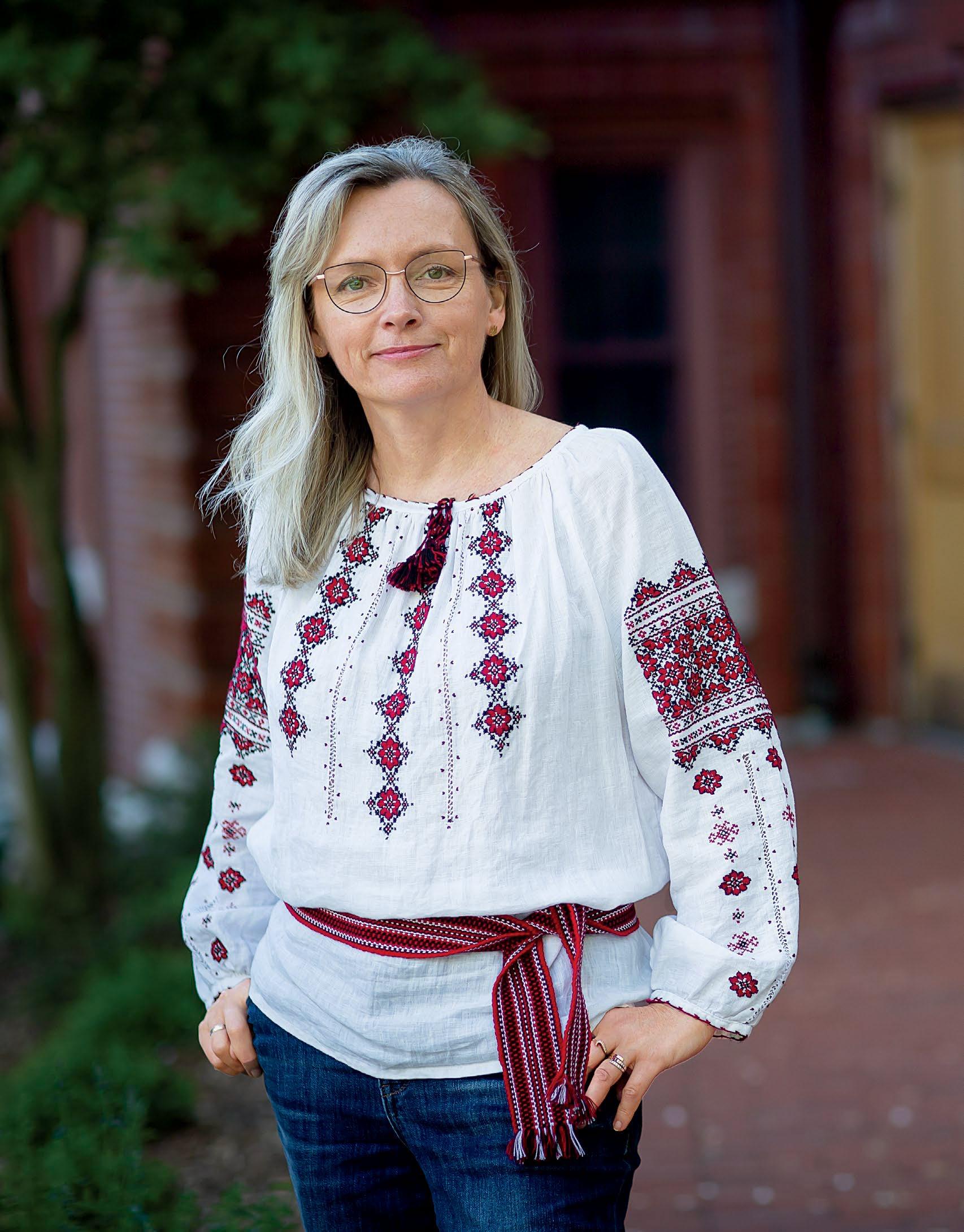
Professor Oxana Shevel is known on campus for her fast-paced lectures sprinkled with anecdotes from growing up in the former Soviet Union and jokes about Leonid Brezhnev. Off campus, she’s known worldwide for her scholarship on nation-building, a new book on the Russo-Ukrainian War, and for leading various organizations for academics studying the post-Soviet and eastern European regions.
Growing up in Ukraine, Shevel was always drawn to politics: “I remember, since was like six, watching news with my grandfather. And then in the Soviet school, once a week, we had so-called “political information,” when the class member had to summarize for the class World News. And I always volunteered to do this because I thought it [was] exciting.” This excitement for politics has contributed to full classrooms in Braker Hall on the Medford/Somerville campus. Shevel lifted the enrollment cap on her Ukrainian politics class multiple times to accommodate the vast interest in the course.
As a student at Kyiv State University when the press started coming to Kyiv during late perestroika, Shevel took a job translating for foreign journalists. Traveling to press conferences and summits with world leaders discussing nuclear disarmament and the future of the Soviet States allowed for a way to learn first-hand about the political systems Shevel grew up with. Since then, Shevel has focused her academic pursuits on politics, citizenship, and nation-building.
Three degrees later, Professor Shevel took a position at Tufts, and in 2023 became the Director of the International Relations program, leading one of the most popular majors at Tufts. In addition to its ideal location in a city known as a beacon of scholarship, Shevel finds Tufts students make the university a uniquely good place to learn and teach. Throughout her time at Tufts, Shevel believes the caliber of undergraduate students has always been strong but is “getting better and better.” Class discussions feel like they could be at the PhD or Master’s Degree level, according to Shevel. Outside of Tufts, Shevel stays very busy. She is the Vice President of the Association for the Study of Nationalities and of the American Association for Ukrainian Studies, as well as a country expert for Global Citizenship Observatory, an associate of the Harvard Ukrainian Research Institute and Davis Center for Russian and Eurasian Studies, a board member of the Shevchenko Scientific Society, and a member of Program on New Approaches to Research and Security (PONARS) Eurasia. On top of all of that, she has been called on to consult the UN High Commissioner for Refugees, the United States Department of State, and recently the Hague for the Organization for Security and Cooperation in Europe. This kind of policy work doesn’t always come easy to academics, according to Shevel. Yet it is also necessary: “But ultimately, we know so much, right? And I think it’s almost like [we have] kind of a duty to try to channel some of this
expertise that we developed through our research to the policy-making community,” says Shevel. At the end of the day, Shevel knows students may forget about the short reign of Malenkov over the Soviet Union (it was, after all, less than a week), or the distinguishing factors of Khrushchev’s versus Gorbachev’s reforms. Instead, she hopes students remember the greater concepts and theories still dictating political actors and states today: “Why would a country be more or less democratic? What enables democracy? What hinders democracy? Let’s look at the experience of Russia, Ukraine, Kazakhstan, Estonia, through the lens of these theories. What can we learn about the theories as we’re learning about these countries?”
Throughout our conversation, Professor Shevel reminded me how much Tufts professors want to know about what students do outside of class, noting how she recently found out about a student volunteering for a refugee resettlement organization and another tutoring in a local high school. Shevel says, “As a faculty member, it’s so fascinating and gratifying, and I’m always so impressed with [students’] accomplishments.” The dedication of faculty to their students is something Shevel thinks all applicants should know, she continues, “We really are in an environment where things [are] student-centered, student-facing, [and] teaching is both valued and possible.”
RUBY MCELHONE YATES ’25
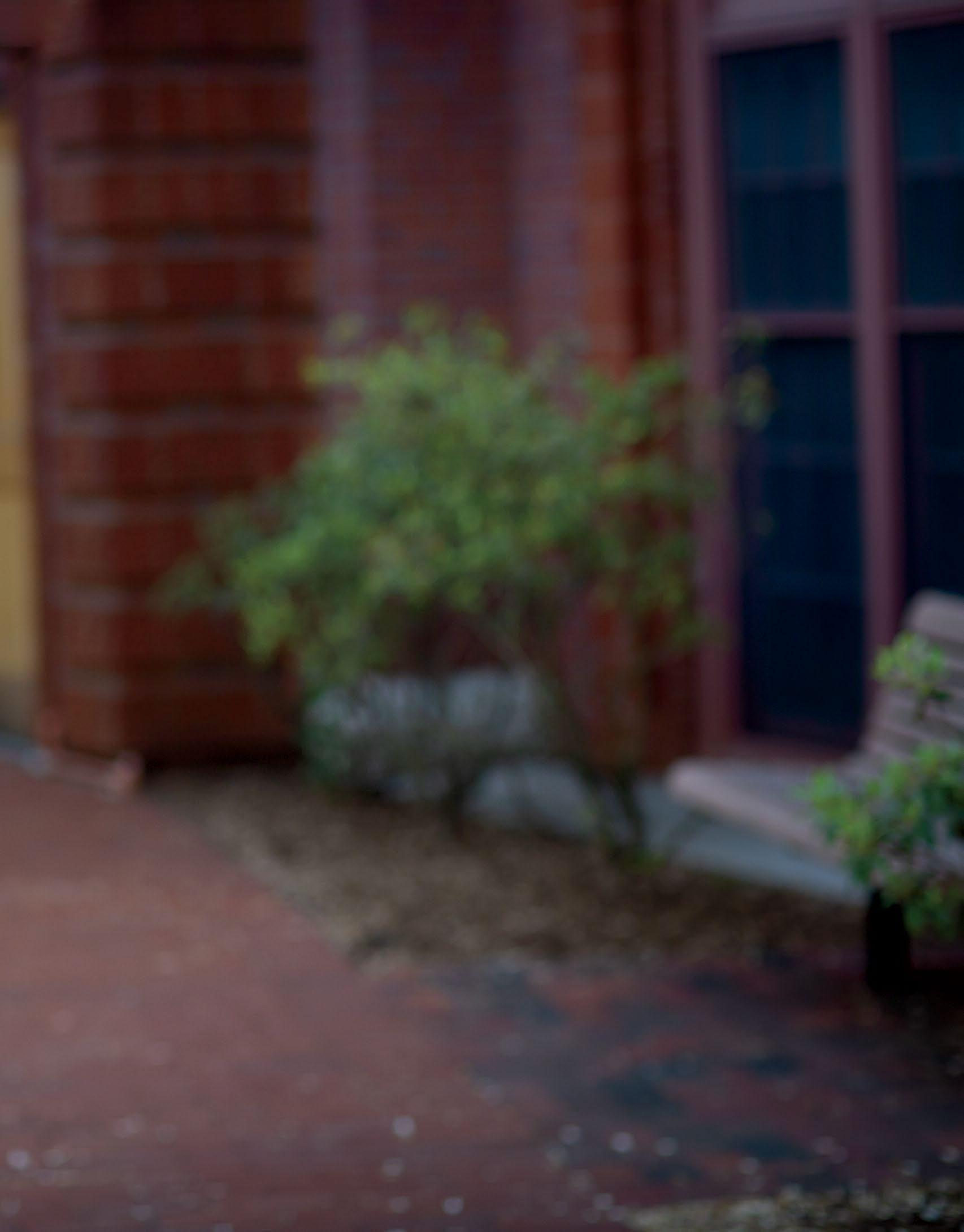
PROFESSOR OF POLITICAL SCIENCE AND DIRECTOR OF THE INTERNATIONAL RELATIONS PROGRAM

Being a student athlete requires many things: resilience, drive, discipline, and a strong connection to your team. But, part of being a strong athlete and a good teammate at Tufts is understanding our relationship to our local communities. Tufts prides itself on a student body that centers civic engagement, and its athletes are particularly dedicated to community service.
BY MADELINE CORTESI ’25
Nicole Kuhl ’27 has been participating in community service all her life, and shared her experience with organizing opportunities as a Civic Life Ambassador for the cross country and track and field teams. These civic ambassadors—every varsity athletic team has them—take a one-credit course to learn about leadership and civic responsibility. Nicole had high praise for the class, especially because of its collaborative nature and how it was designed to fit around the athletic practice schedules. She shed more light on the integration between service activities and the commitment of Tufts varsity athletes by highlighting some of the projects she participated in while doing this program: “Every civic ambassador has a brother or sister team and you pair up to do these civic life projects. Currently I’m working with the men’s swimming and diving team’s Civic Life Ambassador, Daniel Godino, and we’re putting together a field day for Medford families. Specifically, families who have financial
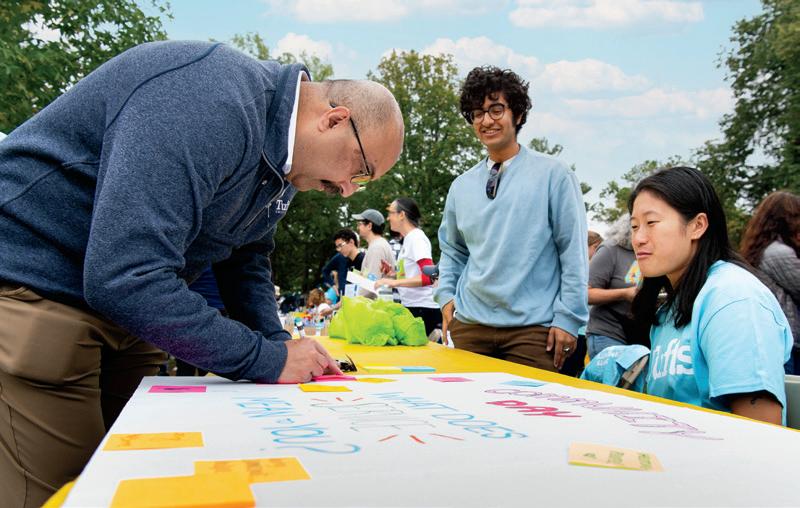
struggles. We’re working with the Metro Family Network that’s stationed in Davis Square. And the Tufts track team has an annual Martin Luther King Jr. Day of Service where we go to Cambridge as a mandatory event for our team.” Nicole also reflected on some of the more spontaneous acts of service that they’ve completed: a kids’ multi-sport clinic and basketball halftime celebration on National Girls & Women in Sports Day; Halloween on the Hill by Tufts Athletics and the Leonard Carmichael Society, which was a free Halloween-themed event with family-friendly activities like trick or treating and featured live performances by students; and Read by the River, a literacy event for elementary school students.
While the goal is community impact, personal fulfillment and learning how to lead effectively are both important byproducts of this program. Nicole shared, “I’ve always had a passion for giving back to the community. Growing up, I would do community
service with my family all the time. It’s always been a pillar of my life and being able to share that with my team has been really awesome. It’s taught me a lot about myself and leadership responsibilities.”
Embarking on these opportunities together has been a way for Nicole and her team to spend meaningful time with each other and with the larger athletics community at Tufts.
One event that is particularly successful in engaging the local Medford and Somerville communities is Community Sports Day. Frank Roche, the Civic Life Administrator for Athletics and formerly a football player as a Jumbo himself, spoke proudly about this initiative.
Roche said, “Community Sports Day is a wonderful opportunity for our student-athletes to interact with local families and make a connection with the community. The premise of the day is to bring people together through the joy that sports can bring, and think both our student-athletes and families
experience that joy on this day. In 2024, our second year running the event, we had over 100 families and 15 varsity and club sports participating and expect even more in 2025. What is really special about the day is when some of the kids recognize our athletes from other events or initiatives throughout the year. We are trying to build impactful relationships with community members and hopefully teach lifelong skills for student-athletes.
The enthusiasm of our student-athletes also sticks out…Our first year running the event, we had to move the activities inside because of a rainstorm. However, our swim and dive team was adamant about remaining outside to get dunked in the dunk tank in 45 degree weather.”
Come rain, shine, or…overcast dunk tank… Jumbo student-athletes are committed to giving their all for our local communities.
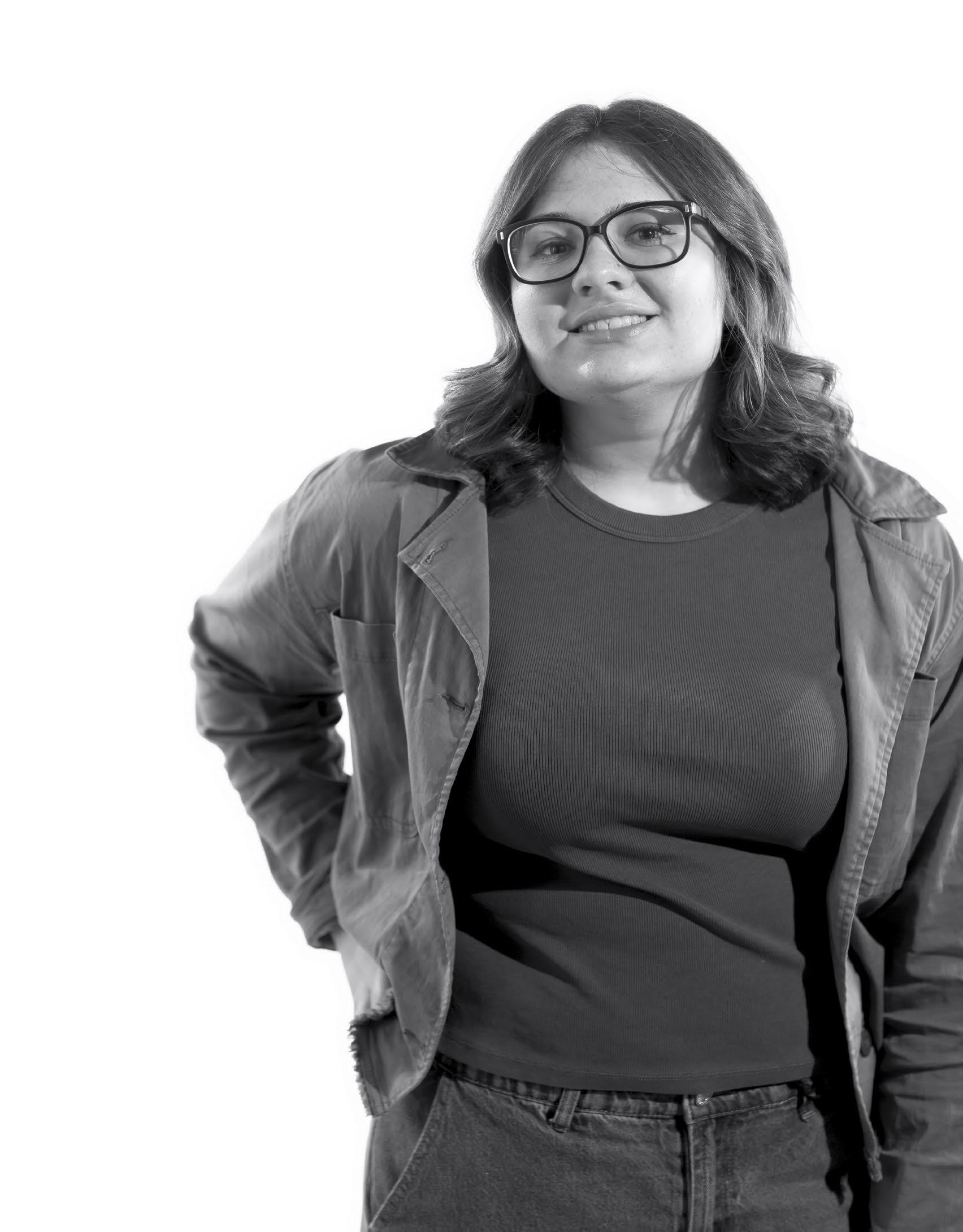
Shannon spends a lot of time writing, whether it’s for Jumbo Magazine or the Tufts Daily, and hopes to one day work as a journalist. Her current obsessions include iced coffee, sketch comedy skits, postmodernist films, and yoga. You can typically find Shannon on campus enjoying a Medford Fog at the Sink, working in the Tufts Daily office, or sitting on the 6th floor of the Joyce Cummings Center deeply invested in a random series of Wikipedia pages.
WE ASK TUFTS COMMUNITY MEMBERS TO TACKLE THE TUFTS SHORT-ANSWER QUESTIONS
Complete the following sentence in 250 words or less: “I am applying to Tufts because…”
I am applying to Tufts because when I first toured Tufts, my tour guide summarized the Tufts community, saying: “everyone challenges you in a good way,” and I still think this encapsulates the spirit of Tufts. My classmates inspire me daily and challenge me to be the best version of myself. Jumbos are accomplished in their interests and encouraged to explore anything they feel drawn to. Whether you’re a chemical engineer who loves to dance on stage, a biology major fascinated by world religions, or an English major interested in technology’s social impact, you’ll find what makes you love to learn on the hill!
Using a specific example or two, tell us about a way that you contributed to building a collaborative and/or inclusive community. (200–250 words)
My first ever leadership role was for the Tufts Daily as the Newsletter Executive. I had loved being a reporter on the front lines, telling the stories that truly matter to the community. When I first took on the newsletter role, I was a little bummed about sending out emails every day when all I really wanted to do was write, but then I realized how important the job was to the newspaper. What good are stories when you aren’t reaching the people who will read them? Traditionally, the newsletter was a one person job, but wanted to get others involved as well. I explained all the benefits of working on the newsletter—how newsletter editors would get to see all of the articles before they are published and how it was a very low commitment way to get involved with the club. When I scheduled my trainings, I held them in the Daily’s office, a quaint basement space where production was happening and friends were having conversations, and tried to be friendly, funny, and responsive to questions and feedback. Everyone learned how to make the newsletter very quickly, and I made sure to let them know that. When I saw my new staff members in class or outside of the Daily, I said “hi” and started conversations with them. At the end of the semester, I was proud to have created a section and strengthened a community while making new friendships in the process.
To see the 2025–26 Tufts short-answer questions, visit https://admissions.tufts.edu/apply/short-answer-questions/
Tufts offers a variety of virtual visit programs and events to help you get to know the community during your college search process. From virtual information sessions to virtual guided tours with our current student tour guides, there are many opportunities to explore. Notably, our signature fall open house is completely virtual, called “Fall for Tufts,” and prospective students have the opportunity to participate in mock classes, student-led panels, and meet a host of on-campus resources. Here are a few tips to help you engage virtually and make the most of your online visit opportunities. BY TUFTS ADMISSIONS
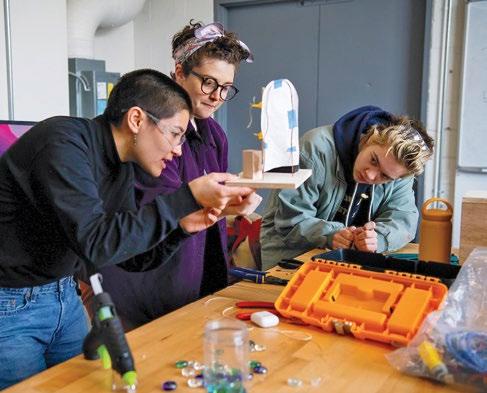
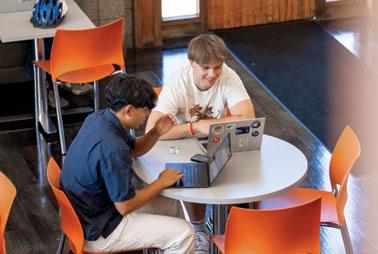
Do your research before the event starts
Learn some of the basics about Tufts ahead of the events in which you are most interested. This could include looking into our academic offerings (over 150 majors, minors, and programs across three undergraduate schools), dining and housing options (we have an on-campus living requirement for first- and second-years), and student organizations (over 350, with new clubs and organizations being created every year).
2
Bring questions that are harder to answer on your own
Hopefully the research you did has helped you realize what you are still curious about. There are some topics that you may want Tufts experts to fill you in on, like the nuances of application review, campus events and traditions ranging from visual and performing arts to athletic games, and opportunities for experiential learning, like study abroad and research. We offer these virtual and on-campus events for you to maximize your interactions with admissions representatives and current undergraduate students and expand your understanding of the Tufts community.
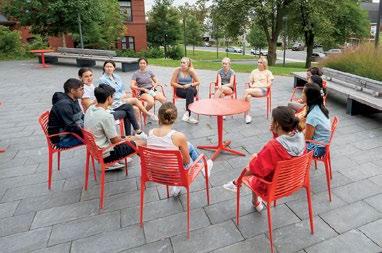

3
Engage more than once
Sure, visiting campus is a great way to get to know Tufts, but so are our online events and programs. We want you to have the opportunity to learn more about us in as many ways as you can! One of the best ways to do so is through our Fall for Tufts virtual open house series. During the months of September and October, we offer a variety of faculty- and student-led panels, meet-and-greets with centers across the University, and mock classes representing a range of academic disciplines. There is something for everyone, and with new events each week, you’re bound to discover something that piques your interest in Tufts.
There are so many different ways to get involved with Tufts and learn more about our innovative, collaborative, and intellectually curious community. We look forward to seeing you, be it on-campus or online, and helping you experience a little more of Tufts.
Arianna Shalhoub ’27 comes to Tufts from just a few towns away. She considers Tufts the best of both worlds: proximity—having it be so close to home—but also being far enough to still have independence and be on her own. Arianna describes Tufts as a great campus in a suburban area with easy access to the city of Boston via the Green Line T stop. She also considers Tufts’ Combined Degree program, where students study for five years and earn two bachelor’s degrees—one in studio art with the School of the Museum of Fine Arts and one from the School of Arts and Sciences, as another example of the best of both worlds. “Being able to study art, which has been my passion for so long, and also to take on another degree—in what I didn’t know at first, though I eventually found engineering psychology—was such a great option for me,” said Arianna. The liberal arts philosophy of Tufts’ undergraduate experience contributed greatly to this exploration for Arianna, she continued, “Having that liberal arts education really allowed me to explore different things. I didn’t even know what engineering psychology was when I stepped on campus, so
being able to explore that, take a class to try it out, and being able to fall in love with a passion that you didn’t even know about [was amazing]. Bringing engineering psychology back into my art at the SMFA [means] thinking about things that ensure the user experience is enjoyable and accessible: different colors that might have better contrasts that make viewing things easier, picking fonts that will be readable, and thinking about how people will perceive my art so that I’m giving the message that want to give.”
Outside of the classroom, Arianna is deeply involved in campus life. Her involvements include founding a show on TUTV called Jumbo Night Live (JNL modeled after the famous sketch comedy show), writing and illustrating a children’s book, and serving as the recruitment chair of the Chi Omega sorority. As a founding member of JNL, there was a lot to learn while building a legacy. According to Arianna, “It’s helped me to grow out of my shell as well. Perform[ing] on stage and doing a lot of silly things, it allows you to feel looser and be able to talk in front of a crowd, which feel like is a really great life skill to have even if don’t pursue comedy
in the future.” The show even include hosts and musical guests, which have pulled from the strong creative community at Tufts. Arianna continued, “We’ve done a mixture of both students who have musical talents and student bands. Right now it’s all Tufts students that have been musical guests, so it’s really great to promote the arts at Tufts.”
Arianna plans to keep focusing on her animation work at SMFA, working on the student engagement team for Tufts Dining, and exploring more unique classes within her engineering psychology major. She shared, “Working on a creative team where I’m able to bring my own sense of humor and tie all [my interests] together is something really exciting. [The field of media contains] aspects of both film and engineering psychology, because you’re creating media for so many people to see. Making sure that you have the viewer in mind is something that I’ve learned a lot from engineering psychology.” Combining all of her interests has opened doors for Arianna already, and we can’t wait to see where they will take her.
MADELINE
CORTESI ’25
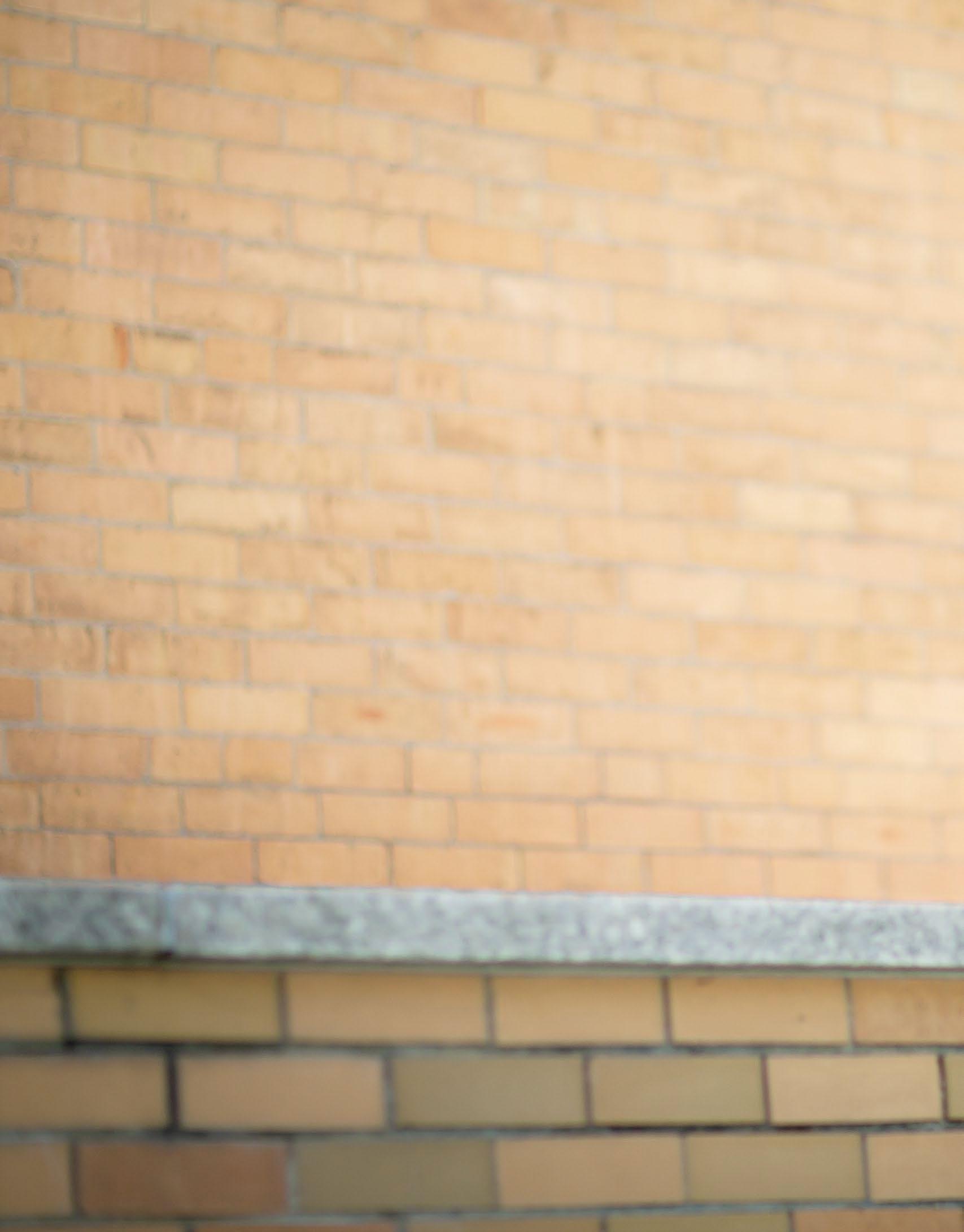

“Working on a creative team where I’m able to bring my own sense of humor and tie all [my interests] together is something really exciting.”

Tufts students are civic leaders committed to engaging with their communities and making positive change. Jumbos show their passion for impact, inclusion, and thoughtful dialogue in thousands of ways. Even if you are not pursuing a major in international relations, political science, civic studies, or any other social science path, you can still show up as an engaged citizen of the world. At Tufts, a commitment to civic engagement expands far beyond the classroom.
By Shannon Murphy ’26
The Cooperation and Innovation in Citizenship (CIVIC) student organization allows students from all across the political spectrum to engage in respectful and nonpartisan discussion. Founded in 2015, the club is the only multipartisan student group on campus. At a time when political polarization can make dialogue feel intimidating or even impossible, CIVIC stands out by promoting mutual respect and nonjudgmental communication.
Conversation is the key to CIVIC—students come to explore the political and social issues that shape our lives by sharing their thoughts, challenging one another, and being open to learning more about national and global affairs. All perspectives on policy, current news, pillars of democracy, and campus life are encouraged.
No prior political knowledge is required to join—at the start of each Monday night meeting, members receive an information sheet about what the topic is that evening. These materials provide important context so that everyone can participate meaningfully, no matter their background. Previous topics have included:
CIVIC explores both the ideas of policies and how they intersect with our everyday lives and identities. Engaging in these conversations doesn’t require expertise—just curiosity, care, and a willingness to listen. Students can choose to contribute to the discussion if they feel empowered to do so. There is also the option for participants to just sit back and listen to their peers.
“We hope that, during our meetings, students feel comfortable talking freely about their beliefs and learn how to respectfully engage with viewpoints other than their own, while always following our civic mantra, ‘Be kind first, be right later,’” Estelle Anderson ’26, former CIVIC president, says. Members of CIVIC come from all different ideological and academic backgrounds, so the club places an emphasis on being kind, respectful, intentional, and open minded. Dialogues are structured to create an inclusive space—students raise a finger to add on to someone else’s point and raise a hand to bring forward a new idea. The simple but effective system fosters an environment of attentive listening and collaborative conversation, ensuring that everyone’s voice can be heard and every idea carries the same weight.
Previous topics have included:
Masculinity and the Manosphere
Tufts’ proposed institutional neutrality policy
Political preferences in dating
Fraternity and sorority culture
Immigration and border control
The impact of the 2024 U.S. general election
Political disagreements are welcome and encouraged. “We try to ensure that there is ideological diversity at every one of our discussions so that students have the opportunity to hear political beliefs other than their own and learn from one another’s perspectives,” Estelle says.
On college campuses, it can sometimes feel like many students lean towards one way on the political spectrum, which can discourage those with dissenting views from speaking out. CIVIC offers an opportunity for everyone in the herd to feel heard.
Last fall, CIVIC received more attention from the Tufts community with their annual debate between Tufts Democrats and Tufts Republicans. As the 2024 presidential election was rapidly approaching, Estelle says that the stakes were especially high. The significance of the election and heightened tensions between voters attracted a large audience.
The goal of the debate was to promote civil dialogue and discussion, while educating audience

“Dialogues are structured to create an inclusive space—students raise a finger to add on to someone else’s point and raise a hand to bring forward a new idea.”
members about the established Democratic and Republican viewpoints on issues like immigration, gun control, and economic inflation so that they could make informed decisions in the general election.
For some students, these topics are controversial and carry a lot of emotional weight. Estelle explains that when planning the debate, CIVIC was deliberate and mindful in making sure that both student organizations had an equal amount of time to present introductions and respond to the moderator’s questions and to their opponents. As the moderator of the debate, Estelle affirmed that if a speaker went over their allotted time, she would promptly cut off their statement, leveling the playing field for both groups.
She was pleased with the respect and camaraderie shown among the debate’s participants. While the questions about immigration and border control elicited diversified responses, the economic discussions resulted in the two parties finding common ground in their beliefs on renewable energy and aggressive tariffs. The emergence of similarities in thought showed that despite the partisanship that makes political differences more glaring than before, there are shared values that are important to recognize.
“Throughout the debate, there were both instances of agreement and disagreement between the two sides, which think really beautifully illustrated what CIVIC is all about—those unexpected moments of finding yourself on the same page as someone whom you would normally clash with politically,” explained Estelle.
During a time when most political arguments are held behind a screen or within the echo chamber of their own social spheres, CIVIC encourages empathetic discussions that strengthen not only students’ own thinking and ability to develop informed opinions on important issues, but also the overall health of our democracy. Being able to converse across differences is essential to the mission of CIVIC and to being a civic leader and an involved member of a community.
In the end, CIVIC is not about changing minds— it’s about opening them.
Professor Calvin “Chip” Gidney’s academic journey is a fascinating story of cultural intersection, curiosity, and intellectual exploration. Growing up in the 1960s between North Carolina and Washington, D.C., Chip was raised in an African American family with parents who had attended HBCUs but sent their children to predominantly white private schools. This experience required him to navigate two distinct worlds, developing a natural ability to code-switch—a skill that would shape both his personal and professional life.
His fascination with language began early.
“Around first grade, my uncle married a French woman, and during visits with them, I became fascinated by the French language,” Chip recalls. That early interest was reinforced when his elementary school introduced French instruction. From then on, his love for languages only grew. “I continued learning languages throughout my education, eventually teaching myself Spanish and traveling to Puerto Rico. Later, I also studied German and Latin,” continued Chip. What started as an interest in French evolved into a lifelong journey to engage in multilingualism and cross-cultural understanding.
At university, Chip initially majored in Russian and Soviet Studies, considering a career in political science before realizing that language studies were his true calling. He took a teaching job in Ecuador, where he became deeply interested in bilingualism and how it affects children’s education.
“I became even more interested in how bilingualism affects children’s education and how children learn language differently than adults,” he reflects. This experience ultimately steered him toward linguistics and child development, fields that would define his career.
A pivotal influence on Chip’s academic path was Fae Von Cook, a neighbor, friend, and African American linguist at the University of the District of
Columbia. Her work inspired him to pursue graduate studies in linguistics. He enrolled at Georgetown University, specializing in sociolinguistics, where he worked alongside leading scholars in African American English and dialect studies. His dissertation explored how African American English influences the education of Black children, particularly through the lens of narrative structures.
Chip’s transition into academia was somewhat unexpected. A faculty member at Tufts University’s Eliot-Pearson Department of Child Study & Human Development encouraged him to apply for an open position. Though he had envisioned working in education, he took the leap. “After an interview and callback, I was offered the position, launching my career in child study and human development,” he shares.
Now a professor in the Child Study & Human Development (CSHD) program, Chip brings a wealth of interdisciplinary knowledge to his teaching and research. His work focuses on understanding children within their broader cultural and linguistic contexts. “Children are not just passive recipients of education; they are active participants in every major societal issue. Our job is to help them navigate these complexities,” he explains.
Chip challenges his students to take a holistic approach to child development—one that integrates psychology, sociology, linguistics, and education. He encourages them to see children as “fully realized individuals” and to critically analyze how social, cultural, and systemic factors shape childhood.
Chip’s commitment to experiential learning is reflected in the way the CSHD program blends theory with hands-on experience. Students engage in research, internships, and fieldwork that address real-world issues like autism, youth substance abuse, and early childhood education programs such as Head Start. “Child development is
influenced by multiple systems—family, education, culture, and policy. Our students need to see the interconnectedness of these factors if they’re going to be effective advocates for children,” he says. Under his guidance, students contribute to significant research, including studies on linguistic stereotypes in children’s media. The program also provides access to one of the country’s largest child development research datasets, allowing students to participate in cutting-edge empirical studies. “We emphasize applied learning through research projects, internships, and collaborations with organizations focused on children and families,” Chip explains.
His dedication to student success extends beyond the classroom. He works closely with university deans to ensure each student receives personalized support, and the CSHD department provides resources such as writing workshops, research retreats, and mentorship programs to help students thrive academically and personally.
Reflecting on the rewards of teaching, Chip shares, “Tufts students are passionate about making a difference in the world. What I love most about teaching here is their curiosity, commitment, and eagerness to challenge assumptions.”
For prospective students, Chip offers this advice: “Be curious. Challenge assumptions. Seek to understand the world beyond your own experiences. If you are committed to advocating for children’s rights and well-being, this program will provide the foundation you need to make a lasting impact.”
Professor Chip Gidney’s journey rooted in language, culture, and child development continues to inspire future generations of scholars and advocates dedicated to improving the lives of children.
AFUA SIAW ’26
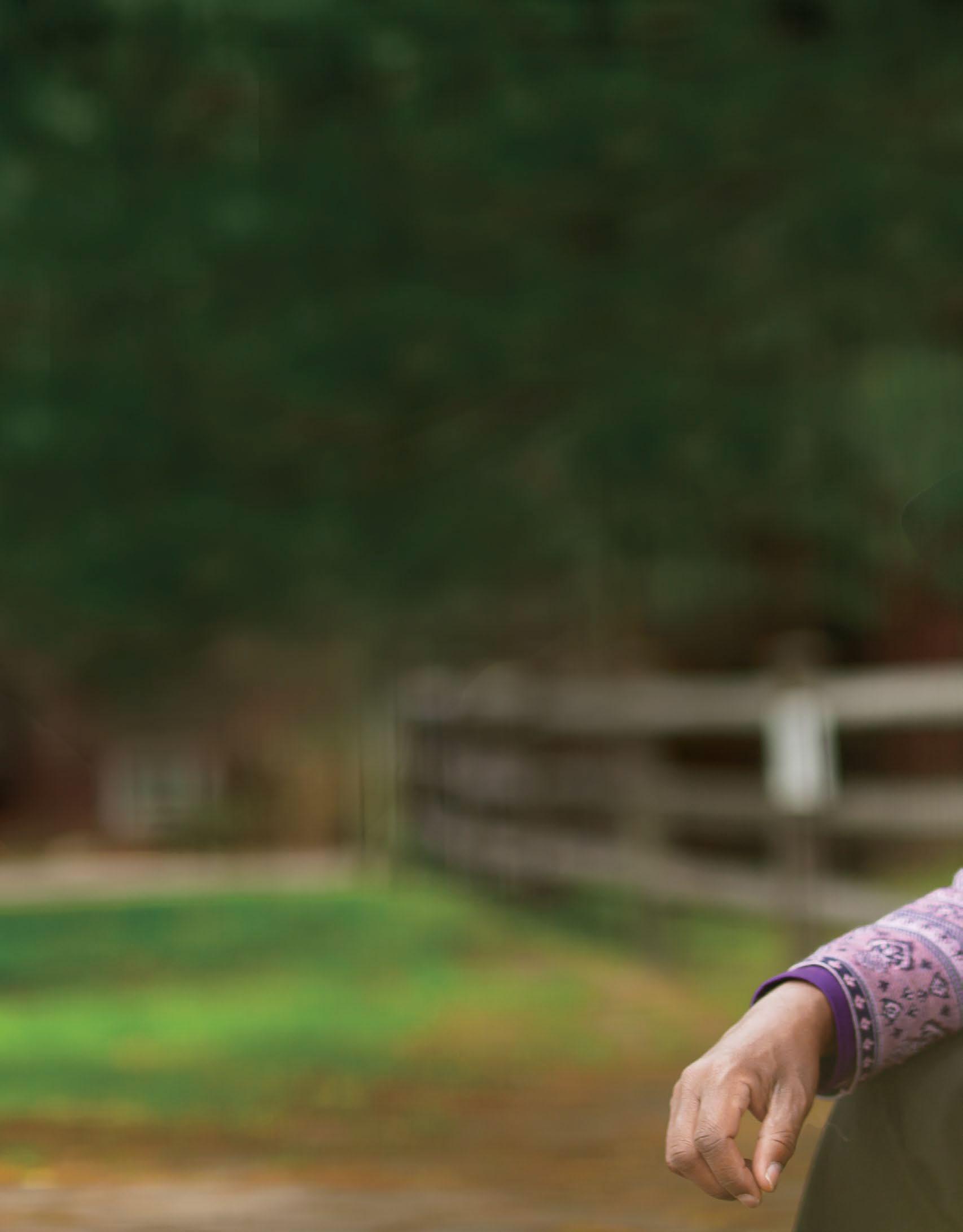

“I was born into two cultures, constantly navigating between them, and I learned from an early age how to communicate in different ways. This ability to code-switch became a natural skill that shaped my life and my work.”
The Shirley and Alex Aidekman Arts Center is a haven for fine arts on Tufts’ Medford/Somerville campus. Home to a rotating gallery of installations, the space is a hub for unique and timely exhibitions year-round. Run by Tufts University Art Galleries (TUAG), this space, along with multiple exhibition spaces on the SMFA Fenway campus, brings contemporary artwork to the campuses to enrich the cultural and intellectual life of Tufts. The building itself is also conveniently located right in front of the stop for the Medford/Fenway shuttle that ferries students between the two campuses!
TUAG hosts four single-artist and group exhibitions each semester, choosing the artists and their work with careful consideration learning, dialogue, and the creative process. During commencement each spring, TUAG hosts thesis work exhibitions for graduate and undergraduate students at SMFA, highlighting the skills and talents that have been nurtured here at Tufts.
Besides the temporary exhibitions, TUAG also brings in artists from around the world to provide classes, symposia, and workshops for Tufts students and the local community. Recent artists have included Sanford Biggers, Arthur Jafa, Claudia Rankine, Aki Sasamoto, and Cecilia Vicuña, among others. Like many spaces at Tufts, TUAG is incredibly interdisciplinary. They produce two curatorial initiatives called Artist Response and TuftsPUBLIC which are focused on political and public artistic practices. From the iconic Acorn Head that moves around campus to the defining Jumbo statue on the Academic Quad, public art is integral to TUAG’s mission of bringing visual art to the Tufts community. And we are all the richer for it.
Have you ever talked about something you’re interested in for so long that your friends and family say, “you could teach a class on that!” At Tufts, you can! The Experimental College (ExCollege) at Tufts gives students the opportunity to teach a class about anything that interests them. From movies and books to airplanes and investing, ExCollege student instructors have shared their expertise and the educational value of their obsessions with fellow Jumbos. Here are some classes that our Jumbos have taught in the past. BY SHANNON MURPHY ’26
EXP-0050-K Mental Health Portrayals in American Culture
Taught by Rowan Chetner ’25 (Psychology major) and Hailey Swett ’25 (Child Study and Human Development major)
Positive perceptions of mental health come from seeing emotional well-being prioritized and mental illnesses treated with the care that they deserve. Conversely, when fighting against the stigma surrounding mental health, it is important to look at where these harmful narratives could have originated from. Rowan and Hailey’s class explored how mental health is discussed in media, classrooms, and interpersonal relationships.
EXP-0050-N The Campaign Trail
Taught by Nate Hall ’25 (History major)
In this course that combined Nate’s interests in history and political science, students learned about the strategies that political candidates have used throughout U.S. history when campaigning for office. While the class touched upon historical examples of political campaigning, it also followed the then impending 2024 presidential election and current applications of campaign techniques. Students analyzed the use of debates, speeches, voter outreach, campaign finance, identity politics, and social media decisions by political candidates. At the end of the course, students created their own mock campaign for a fictional candidate of their choice.
EXP-0050-H The Evolution of Fairy Tales
Taught by Marlee Stout ’25 (Child Study and Human Development major)
Fairy tales are still being told after centuries. These stories can be so deeply ingrained in our culture that we often neglect to look at them through a critical lens and examine why they remain relevant.
In Marlee’s class, students explored the origins of western fairy tales and traced the trajectory of the stories through Disney’s adaptations and the “twists” that media has given them over the last century, all the way to the most recent retellings and live action movie remakes from the past decade. By the end of the course, students could identify the themes and patterns of fairy tales and talk about why we should (or shouldn’t) keep telling these stories.
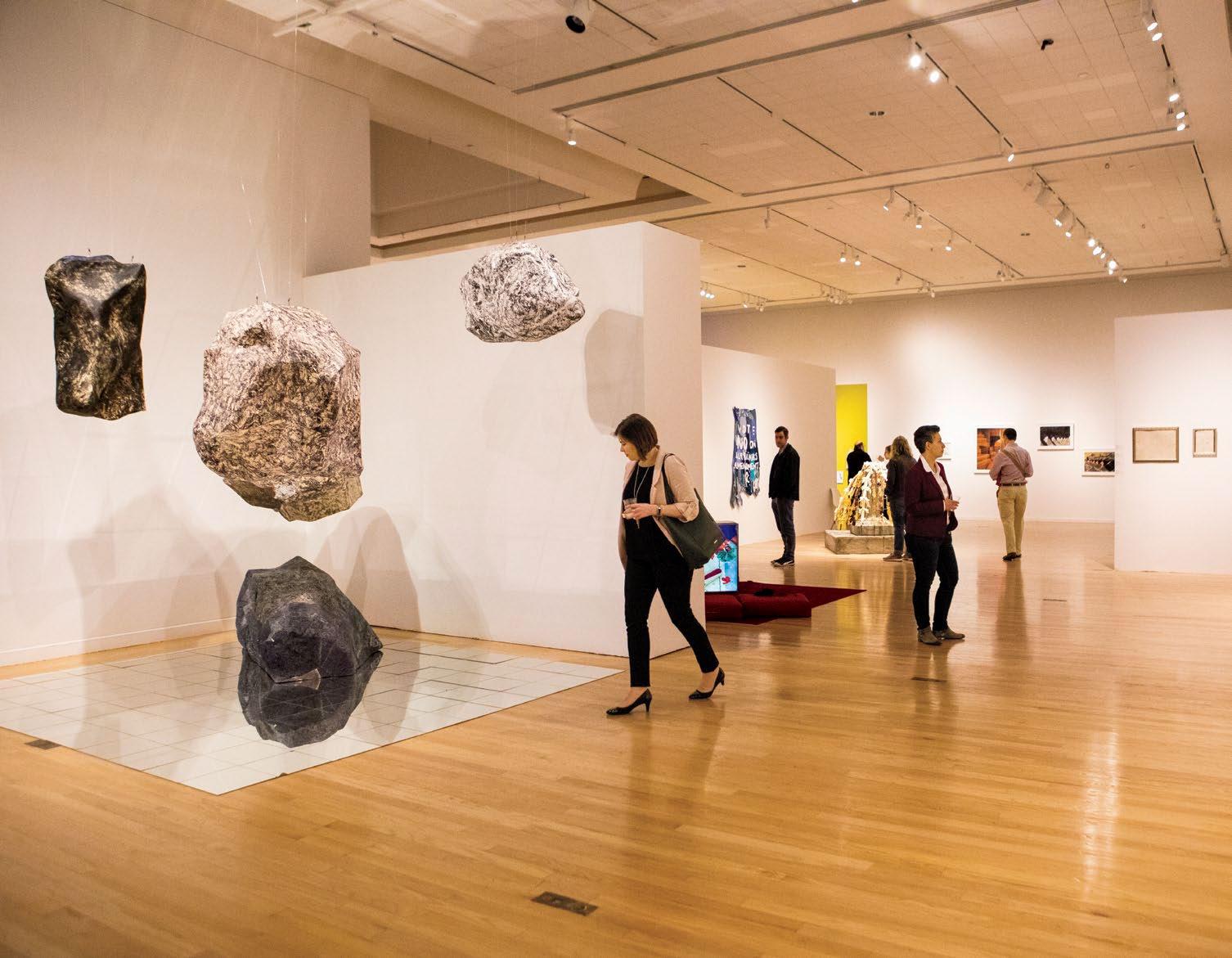
Application Deadline: Early November
Notification Date: Mid-December
Early Decision II
Application Deadline: Early January
Notification Date: Early February
Regular Decision
Application Deadline: Early January
Notification Date: By April 1
Transfer Admission
Application Deadline: Mid-March
Notification Date: Mid-May
*Please visit admissions.tufts.edu/apply for the most up-to-date information on deadlines.
Testing (Optional)
We accept either the ACT or the SAT; neither is required. Applicants may choose whether they wish to have exam scores considered as one component of their application.
Letters of Recommendation
We require one from a school counselor and one from a teacher in a junior or senior year major academic course (math, natural science, social science, English, or a world language). You may send us one additional if you’d like. Art Portfolio
Required only for applicants to the BFA and Combined Degree (BFA + BA/BS) programs.
TUFTS CLASS OF 2029 ADMISSIONS PROCESS
33,000+ first-year applications
admitted 100% of demonstrated financial need met for all admitted students
Tufts is test-optional. First-year and transfer applicants have a choice about whether or not to submit SAT or ACT scores to be considered for undergraduate admission. In recent years, about half of applicants, and about 60% of admitted students, submitted SAT or ACT scores.
miles from boston
average class size
varsity sports teams 350+ student clubs and organizations 46% women in the School of Engineering 100+ countries represented
*Note: not required of international or undocumented applicants for financial aid
*Please review the financial aid website for the most up-to-date information and deadlines: admissions.tufts.edu/tuition-and-aid
Non-Custodial Profile (NCP): if your parents are divorced or separated. The requirement may be waived by the Tufts Financial Aid Office under very specific circumstances.
Applicants should submit all documentation to IDOC (idoc.collegeboard.org/idoc). Your account will be created at idoc.collegeboard.org once you submit the CSS Profile. Please do not send tax returns directly to Tufts Admissions or Financial Aid.
For International Students International students applying for financial aid must submit the CSS Profile with supporting documents submitted through IDOC. If the CSS Profile cost would cause significant financial hardship for your family, you may instead complete the International Student Financial Aid Application (ISFAA) through your Tufts portal once your application has been submitted. The completed ISFAA supporting documents must be submitted through your Tufts applicant portal.
If you are applying for financial aid at Tufts and have a Social Security number, please make sure to include that information in your application for admission so your materials can be properly matched.
Tufts offers 150+ majors, minors, and programs across the School of Arts and Sciences, the School of Engineering, and the School of the Museum of Fine Arts. Be sure to check our website for detailed information on each program.
SCHOOL OF ARTS AND SCIENCES MAJORS
Africana Studies
American Studies
Ancient World Studies
Anthropology
Applied Environmental Studies
Applied Mathematics
Applied Physics
Arabic - International Literary and Cultural Studies
Archaeology
Architectural Studies
Astrophysics
Biochemistry
Biology
Biomedical Sciences1
Biopsychology
Biotechnology1
Chemical Physics
Chemistry
Child Study and Human Development
Chinese - International Literary and Cultural Studies
Civic Studies1
Climate Science
Clinical Psychology
Cognitive and Brain Science
Community Health
Computer Science
Earth Science
Economics
Education1
English
Environmental Studies1
Film and Media Studies
French and Francophone
Cultural Studies
French and Francophone
Literary Studies
German International Literary and Cultural Studies
German Studies
Greek
Greek and Latin
Hebrew International Literary and Cultural Studies
History
History of Art and Architecture
Human Factors
Psychology
Interdisciplinary Studies
International Literary and Cultural Studies - Comparative
International Literary and Visual Studies
International Relations
Italian Studies
Japanese International Literary and Cultural Studies
Judaic Studies
Latin
Latin American Studies
Mathematics
Middle Eastern Studies
Music, Sound, and Culture
Philosophy
Physics
Political Science
Psychology
Quantitative Economics
Race, Colonialism, and Diaspora Studies
Religion
Romance Studies
Russian International Literary and Cultural Studies
Russian and Eastern European Studies
Science, Technology, and Society1
Sociology
Spanish Cultural Studies
Spanish Literature
Theatre, Dance, and Performance Studies
Women’s, Gender, and Sexuality Studies
SCHOOL OF ENGINEERING MAJORS
Architectural Studies
Biomedical Engineering
Biotechnology1
Chemical Engineering
Civil Engineering
Computer Engineering
Computer Science
Data Science
Electrical Engineering
Engineering
Engineering
Physics
Engineering
Science
Environmental Engineering
Human Factors Engineering
Mechanical Engineering
SMFA AT TUFTS AREAS OF STUDY
SMFA at Tufts programs offer an interdisciplinary studio art curriculum with access to faculty, classes, and studio support in any medium or combination of mediums they choose.
Animation
Analytical Chemistry
Ancient World Archaeology
Ancient World Studies
Applied Computational Science
Arabic
Archaeological Anthropology
Architectural Engineering
Architectural Studies
Asian American Studies
Astrophysics
Biological Anthropology
Biophysical Chemistry
Biotechnology
Business, Management, and Leadership
Cellular Agriculture
Chemical Mechanism and Structure
Chemical Physics
Chemistry
Arts
Illustration
Installation
Jewelry
Metals
Painting
Papermaking
Performance
Photography
Printmaking
Sculpture
Sound
Video
Virtual Reality
FIVE-YEAR COMBINED DEGREE PROGRAM
Arts & Sciences/SMFA
Combined Degree: BA or BS and Bachelor of Fine Arts
PRE-PROFESSIONAL ADVISING
Pre-Dental
Chemistry of Life
Child Study and Human Development
Chinese
Cognitive and Brain Science
Colonialism Studies
Comparative Politics
Computational Chemistry
Computer Science
Cultural Anthropology
Dance
Digital Humanities
Earth and Climate Sciences
Economics
Education
Embedded Systems2
Engineering Education2
Engineering Management
English
Entrepreneurship
Entrepreneurship for Social Impact
Environmental Science and Policy2
Film and Media Studies
Finance
Food Systems and Nutrition
Foreign Policy Analysis
French
Geosystems Engineering2
Mathematics
Medical Anthropology
Medieval Studies
Museums, Memory, and Heritage
Music, Sound, and Culture
Music Engineering
Native American and Indigenous Studies
Peace and Justice Studies
Philosophy
Physics
Political Economy
Political Science
Political Thought Portuguese Religion
Russian Science, Technology, and Society
Social Justice Anthropology
Sociology
Spanish
Studio Art
Theatre and Performance Studies
Urban Studies
Visual and Material Studies
Women’s, Gender, and Sexuality Studies
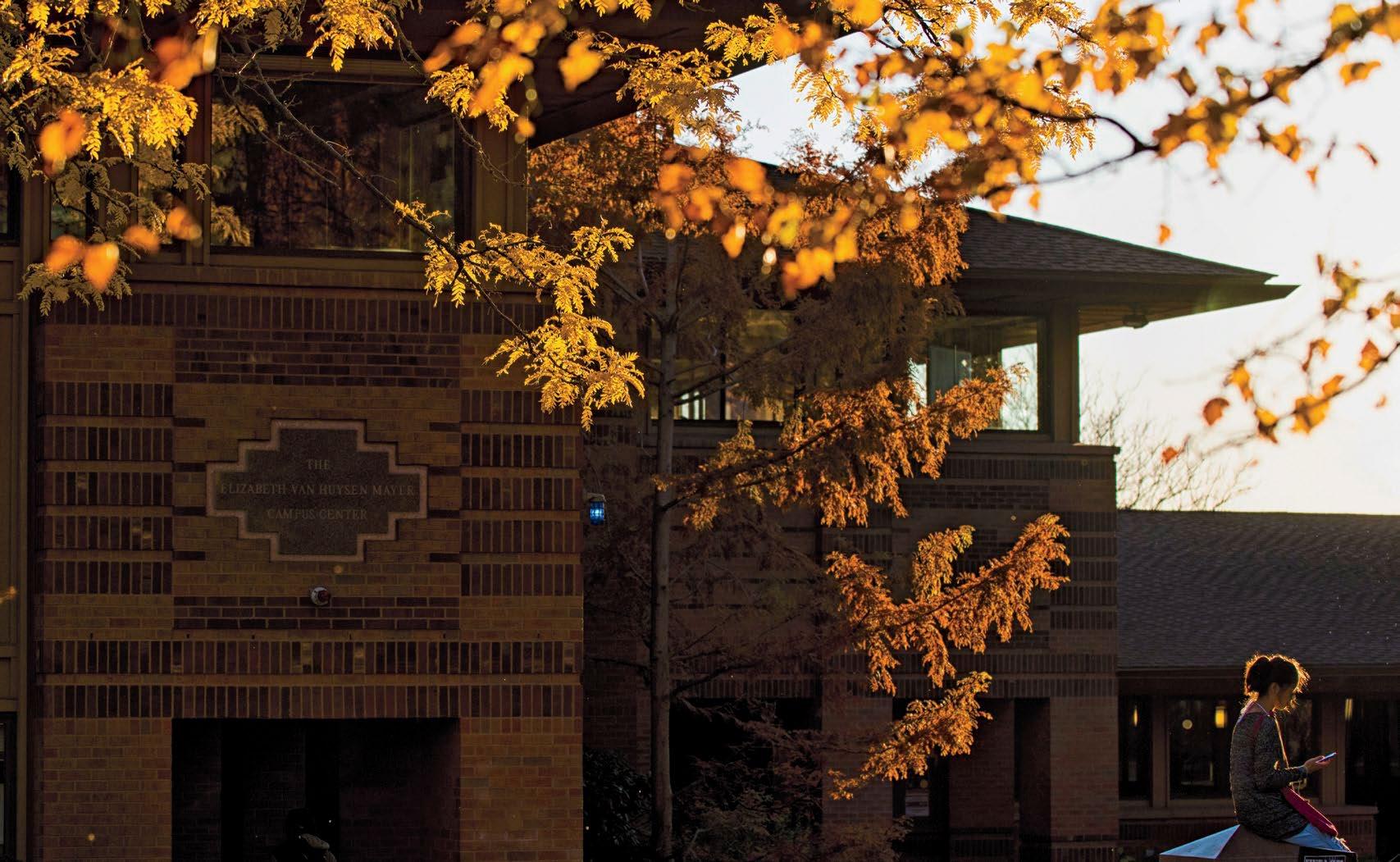
Tufts is a student-centered research university, which means that we like to dig into our passions deeply and figure things out for ourselves—whether that involves using silk to regenerate tissue or spending a fully-funded summer exploring the political implications of Shakespeare’s plays through the Summer Scholars program. Students and professors come together, across disciplines, to ask questions and create meaning.
Jumbos use their skills and ideas to better people’s lives, whether they are teaching engineering in local elementary schools, creating sustainable businesses, or spending a semester in Peru or Thailand immersed in social and environmental justice as part of the Tufts Civic Semester. They understand that they are citizens of a global community, and they embrace that responsibility.
…in a lot of things. Tufts students don’t limit themselves: they combine biology with philosophy, compete as nationally-ranked D-III athletes, pursue Bachelor of Fine Arts degrees in studio art at our School of the Museum of Fine Arts, and solve problems as engineers. They’re part of a community that embraces the unconventional and the uncategorizable.
This is a place where students are as excited to debate fan theories as they are to apply mathematical theorems—as intellectually playful as they are powerful. We believe that ideas can have a profound impact on the world, and those ideas can be born around the seminar table but also in the residence hall common room.
OFFICE OF UNDERGRADUATE ADMISSIONS
Tufts University
Bendetson Hall
2 The Green Medford, MA 02155-7057
617-627-3170
admissions.tufts.edu
